- Best Picture: Citizen Kane (1941)
- Best Actor: Marlon Brando (1951)
- Best Actor: Clark Gable (1939)
- Best Supporting Actor: Anthony Perkins (1960)
- Best Actor: Humphrey Bogart (1942)
- Best Supporting Actor: Wes Studi (1992)
- Psycho (1960)
- E.T. the Extra-Terrestrial (1982)
- Best Actress: Gloria Swanson (1950)
- Best Cinematography: Gregg Toland (1941)
- Best Picture: The Color Purple (1985)
- Best Actor: Burt Lancaster and Montgomery Clift (1953)
- Best Actress: Whoopi Goldberg (1985)
- Best Picture: The Great Escape (1963)
- Best Actor: Peter Sellers (1979)
- Best Editing: Lou Lombardo (1969)
- Best Documentary: Hoop Dreams (1994)
- Best Director: Orson Welles (1941)
- Best Original Screenplay: Christopher Guest, Michael McKean, Harry Shearer, and Rob Reiner (1984)
- Best Actor: Peter O'Toole (1962)
- Best Picture: Apocalypse Now (1979)
- Best Actor: Richard Burton (1965, 1966, and 1977)
- Best Director: Francis Ford Coppola (1979)
- Best Picture: Raging Bull (1980)
- Best Actor: Morgan Freeman (1989)
- Best Actor/Supporting Actor: Jon Voight and Dustin Hoffman (1969)
- Best Picture: The Shawshank Redemption (1994)
- Best Actor: Sidney Poitier (1967)
- Best Director: Steven Spielberg (1975)
- Best Supporting Actor: Peter Firth (1977)
- Best Original Screenplay: Stanley Weiser and Oliver Stone (1987)
- Best Director: Alfred Hitchcock (1960)
- Best Actor: James Cagney (1949)
- Best Original Screenplay: Michael Schiffer (1989)
- Best Actor: Jim Carrey (1999)
- Best Director: Steven Spielberg (1982)
- Best Actor: Paul Muni (1937)
- Best Actor: Eric Roberts (1983)
- Best Actress: Jennifer Grey (1987)
- Best Supporting Actor: John Candy (1987)
- Best Picture: A Streetcar Named Desire (1951)
- Original Screenplay: John Singleton (1991)
- Best Actor: Billy Bob Thornton (1996)
- Best Supporting Actor: Leonardo DiCaprio (1993)
- Best Actor: Steve McQueen (1973)
- Best Adapted Screenplay: David Mamet (1992)
- Best Picture: JFK (1991)
- Best Actor: Val Kilmer (1991)
- Best Supporting Actor: Marlon Brando (1979)
- Best Supporting Actor: Ice Cube (1991)
- Best Picture: Saving Private Ryan (1998)
- Best Actress: Jamie Lee Curtis (1988)
- Best Actor: Burt Lancaster (1975)
- Best Supporting Actor: Michael Rooker (1990)
- Best Actress: Shirley Stoler (1970)
- Best Actor: Yul Brynner (1956)
- Best Supporting Actress: Margaret Hamilton (1939)
- Best Supporting Actress: Ronee Blakley (1975)
- Best Actor: Robert Duvall (1997)
- Best Actor: Robert Redford (1998)
- Best Actor: Robert Mitchum (1957)
 Everybody knows Citizen Kane is one of the greatest movies made which puts everything about cinema
into perspective. An important film for numerous reasons, it's one of the best-shot works of art in terms of
storytelling through the power of cinematography. The controversy behind the scenes is the reason for its
mammoth reputation which makes the story all the more fascinating. Instead, the Oscar went to
How Green Was My Valley. Um, what?
Everybody knows Citizen Kane is one of the greatest movies made which puts everything about cinema
into perspective. An important film for numerous reasons, it's one of the best-shot works of art in terms of
storytelling through the power of cinematography. The controversy behind the scenes is the reason for its
mammoth reputation which makes the story all the more fascinating. Instead, the Oscar went to
How Green Was My Valley. Um, what?
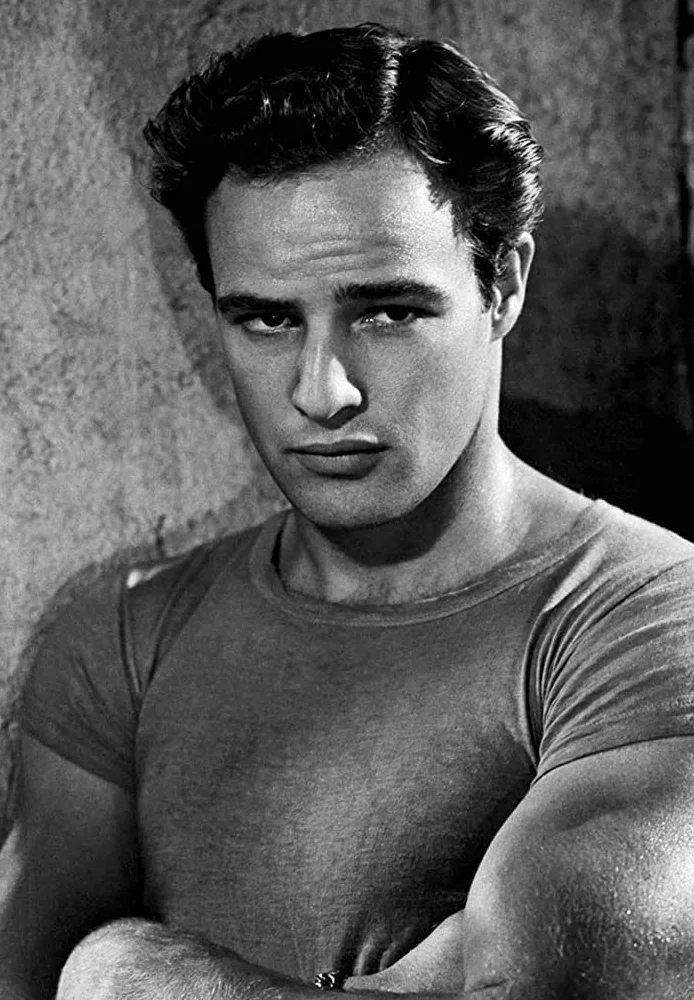 Vivien Leigh, Karl Malden, and Kim Hunter won the Oscar for Best Actress, Best Supporting Actor, and Best Supporting
Actress, respectively. But all anyone can remember is the animal sexuality that Marlon Brando brought on screen for
A Streetcar Named Desire. It's a landmark picture in terms of acting, representing a change of the guard.
What happened is Humphrey Bogart (The African Queen) campaigned for the Oscar while Brando put forth
no effort. It may have been a make-up for Casablanca.
Vivien Leigh, Karl Malden, and Kim Hunter won the Oscar for Best Actress, Best Supporting Actor, and Best Supporting
Actress, respectively. But all anyone can remember is the animal sexuality that Marlon Brando brought on screen for
A Streetcar Named Desire. It's a landmark picture in terms of acting, representing a change of the guard.
What happened is Humphrey Bogart (The African Queen) campaigned for the Oscar while Brando put forth
no effort. It may have been a make-up for Casablanca.
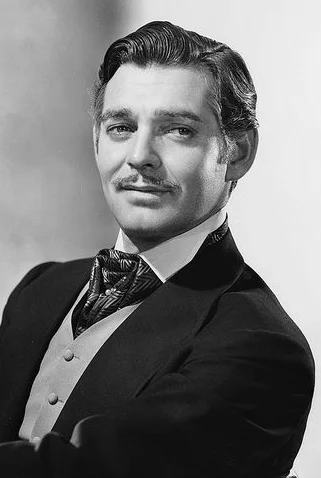 Was the Academy blind or what? Did they not see a prominent actor by the name of Clark Gable in
Gone with the Wind? He wasn't called "The King of Hollywood" for nothing. It's absurd they gave the
Best Actor award to Robert Donat for Goodbye, Mr. Chips. I bet you Gone with the Wind has
been shown on TV a million times more than the other forgettable picture.
Was the Academy blind or what? Did they not see a prominent actor by the name of Clark Gable in
Gone with the Wind? He wasn't called "The King of Hollywood" for nothing. It's absurd they gave the
Best Actor award to Robert Donat for Goodbye, Mr. Chips. I bet you Gone with the Wind has
been shown on TV a million times more than the other forgettable picture.
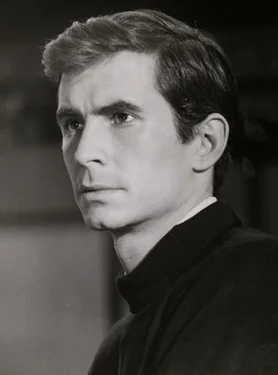 Talk about famous villains in movie history. There's no denying the impact that Anthony Perkins had on
Psycho. Taking a shower would never be the same again. His character has the best lines such as
"We all go a little mad sometimes, "A boy's best friend is his mother," and "I think I must have one of
those faces you can't help believing." I don't know if Anthony Perkins' homosexuality was the reason why.
Instead, the award went to Peter Ustinov for Spartacus. Zzz.......
Talk about famous villains in movie history. There's no denying the impact that Anthony Perkins had on
Psycho. Taking a shower would never be the same again. His character has the best lines such as
"We all go a little mad sometimes, "A boy's best friend is his mother," and "I think I must have one of
those faces you can't help believing." I don't know if Anthony Perkins' homosexuality was the reason why.
Instead, the award went to Peter Ustinov for Spartacus. Zzz.......
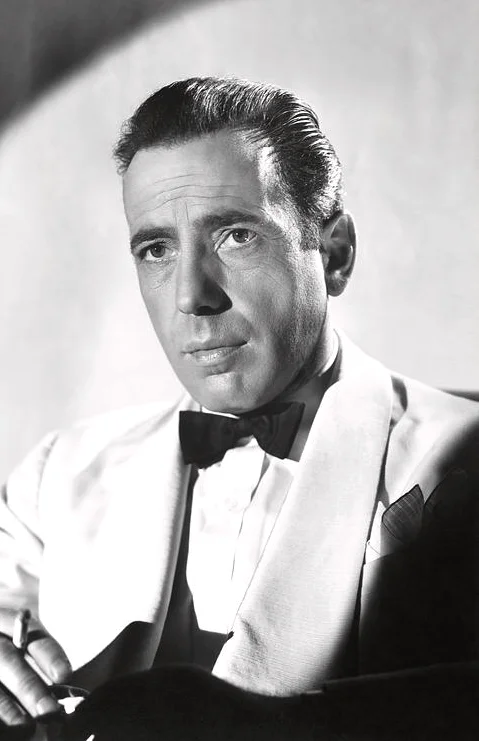 Casablanca is the greatest movie of all time with some of the best lines ever written. It wouldn't
have been made possible without Humphrey Bogart. Therefore, it's shocking he didn't win the Oscar for Best
Actor. Believe it or not, nobody involved in the production expected success, but his character is quite
iconic. Hysterically, the award went to Paul Lukas for Watch on the Rhine, a film I bet nobody has
heard of today.
Casablanca is the greatest movie of all time with some of the best lines ever written. It wouldn't
have been made possible without Humphrey Bogart. Therefore, it's shocking he didn't win the Oscar for Best
Actor. Believe it or not, nobody involved in the production expected success, but his character is quite
iconic. Hysterically, the award went to Paul Lukas for Watch on the Rhine, a film I bet nobody has
heard of today.
 If there was a perfect time to honor an American Indian, this is it. Unbelievably, the Academy skipped
Wes Studi. If not for him, I don't think The Last of the Mohicans would have been half of the film as it is.
Wes Studi received an Academy Honorary Award in 2019, probably as a make-up. Still, it's pathetic. Gene Hackman
ended up getting it for Unforgiven.
If there was a perfect time to honor an American Indian, this is it. Unbelievably, the Academy skipped
Wes Studi. If not for him, I don't think The Last of the Mohicans would have been half of the film as it is.
Wes Studi received an Academy Honorary Award in 2019, probably as a make-up. Still, it's pathetic. Gene Hackman
ended up getting it for Unforgiven.
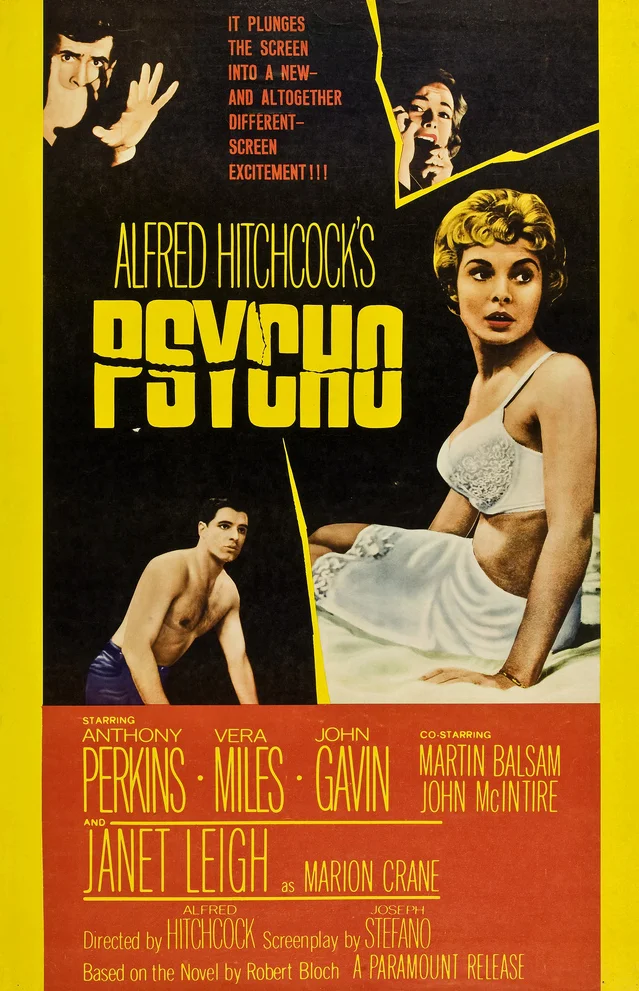 Five Oscars including Best Picture went to The Apartment...really? That wasn't an outstanding movie but
rather disgusting. Did the voters back then notice the little film called Psycho by Alfred Hitchcock?
Of course not...it wasn't even nominated. Today, everybody knows Psycho is one of the greatest made
and remains timeless while The Apartment should be forgotten for good.
Five Oscars including Best Picture went to The Apartment...really? That wasn't an outstanding movie but
rather disgusting. Did the voters back then notice the little film called Psycho by Alfred Hitchcock?
Of course not...it wasn't even nominated. Today, everybody knows Psycho is one of the greatest made
and remains timeless while The Apartment should be forgotten for good.
 They don't make movies like E.T. the Extra-Terrestrial anymore. The 80's was the decade of E.T. with the
dolls, Reese's Pieces, Atari game cartridges, and VHS tapes being all over the place. It was impossible to escape
them. The story is unique and can easily hit all people of any age. Two most famous moments are
when Elliott and E.T. start to fly through the air on the BMX bike and be in front of the moon. Oddly,
the award went to Gandhi.
They don't make movies like E.T. the Extra-Terrestrial anymore. The 80's was the decade of E.T. with the
dolls, Reese's Pieces, Atari game cartridges, and VHS tapes being all over the place. It was impossible to escape
them. The story is unique and can easily hit all people of any age. Two most famous moments are
when Elliott and E.T. start to fly through the air on the BMX bike and be in front of the moon. Oddly,
the award went to Gandhi.
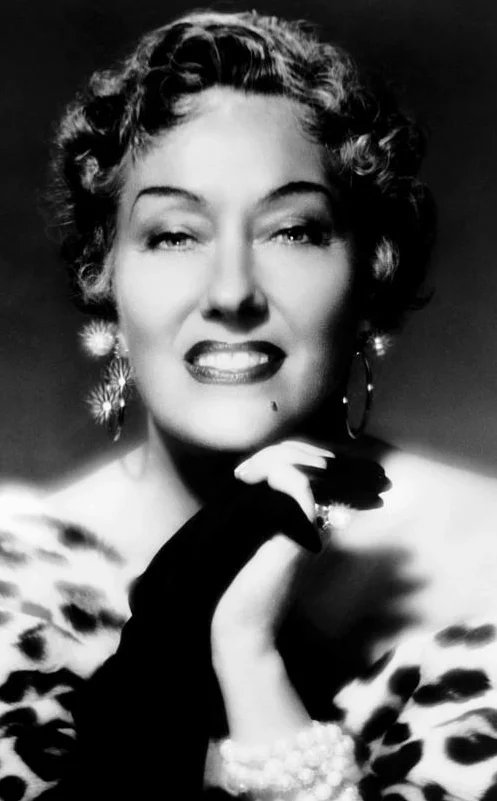 "You're Norma Desmond. You used to be in silent pictures. You used to be big." Taking a short pause, she
defiantly corrects Joe Gillis, "I am big. It's the pictures that got small." Thanks to Gloria Swanson, it's
an all-time great line to mark the beginning of a strange film that's still timeless after many decades:
Sunset Boulevard. Hard to believe is she lost to Judy Holliday of Born Yesterday. Even
Bette Davis (All About Eve) had to admit Gloria Swanson deserved it.
"You're Norma Desmond. You used to be in silent pictures. You used to be big." Taking a short pause, she
defiantly corrects Joe Gillis, "I am big. It's the pictures that got small." Thanks to Gloria Swanson, it's
an all-time great line to mark the beginning of a strange film that's still timeless after many decades:
Sunset Boulevard. Hard to believe is she lost to Judy Holliday of Born Yesterday. Even
Bette Davis (All About Eve) had to admit Gloria Swanson deserved it.
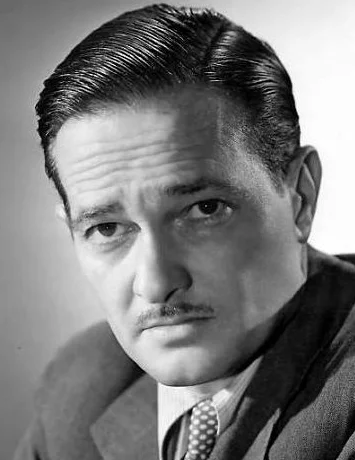 What makes Citizen Kane a spellbinding viewing is how busy or interesting many scenes are, by using different
photography techniques, that I had to pause the movie many times just to look at everything. I think it's part
of Orson Welles' charm to force me to visit the film many times over. Instead, the award went to
Arthur Miller for How Green Was My Valley.
What makes Citizen Kane a spellbinding viewing is how busy or interesting many scenes are, by using different
photography techniques, that I had to pause the movie many times just to look at everything. I think it's part
of Orson Welles' charm to force me to visit the film many times over. Instead, the award went to
Arthur Miller for How Green Was My Valley.
 Quick! Name a black film that won Best Picture during the 20th century. Ding-dong! There isn't any! Now, the
Academy is trying to look good by rewarding anything that comes along, no matter how mediocre it is, when it blew
plenty of chances for seventy-one years. It shows you their true colors. The all-white snoozefest that's
called Out of Africa snatched the win which is ironical given the author of the book was racist and a white
supremacist.
Quick! Name a black film that won Best Picture during the 20th century. Ding-dong! There isn't any! Now, the
Academy is trying to look good by rewarding anything that comes along, no matter how mediocre it is, when it blew
plenty of chances for seventy-one years. It shows you their true colors. The all-white snoozefest that's
called Out of Africa snatched the win which is ironical given the author of the book was racist and a white
supremacist.
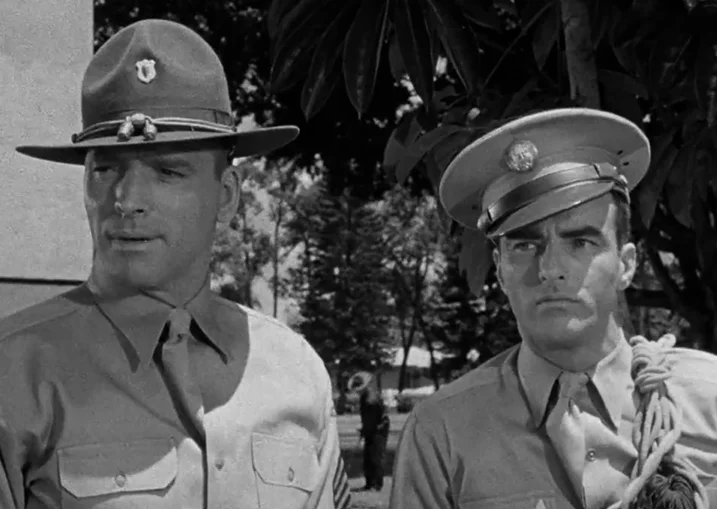
It's impossible for me to say who was better in From Here to Eternity: Burt Lancaster or Montgomery
Clift. Hence, they should've won in a tie. Stalag 17's William Holden was the winner, which is perhaps
a make-up for what happened in 1951 with Sunset Boulevard, and he had publicly said so.
 Making her astonishing screen debut in The Color Purple is Whoopi Goldberg. Seriously, where's the Oscar
for her? The Academy has to be joking; its voters must have been more than 99% white. A make-up Oscar was
granted to Whoopi Goldberg for Ghost. Regardless, Geraldine Page ended up winning it for her
saccharine performance in The Trip to Bountiful.
Making her astonishing screen debut in The Color Purple is Whoopi Goldberg. Seriously, where's the Oscar
for her? The Academy has to be joking; its voters must have been more than 99% white. A make-up Oscar was
granted to Whoopi Goldberg for Ghost. Regardless, Geraldine Page ended up winning it for her
saccharine performance in The Trip to Bountiful.
 I must have seen The Great Escape so many times since I was little. It's one of the greatest epics
ever made. Everybody knows the story and what happened to each character and will never forget
Steve McQueen's failed motorcycle jump at the end. What a shock that The Great Escape was never
nominated for Best Picture. Instead, it went to the most forgettable winner of the 60's: Tom Jones.
The same argument is made for Best Director: John Sturges over Tony Richardson.
I must have seen The Great Escape so many times since I was little. It's one of the greatest epics
ever made. Everybody knows the story and what happened to each character and will never forget
Steve McQueen's failed motorcycle jump at the end. What a shock that The Great Escape was never
nominated for Best Picture. Instead, it went to the most forgettable winner of the 60's: Tom Jones.
The same argument is made for Best Director: John Sturges over Tony Richardson.
 Peter Sellers gives the best performance of his career in Being There. He's brilliant. What a hard
role to pull off: the ability to be oblivious in a child-like way yet be taken for a genius. The Oscar went
to Dustin Hoffman for Kramer vs. Kramer. Absolutely not; the Academy Awards really hate the British.
That belonged to Peter Sellers. It's too bad he died not long afterwards at age 54.
Peter Sellers gives the best performance of his career in Being There. He's brilliant. What a hard
role to pull off: the ability to be oblivious in a child-like way yet be taken for a genius. The Oscar went
to Dustin Hoffman for Kramer vs. Kramer. Absolutely not; the Academy Awards really hate the British.
That belonged to Peter Sellers. It's too bad he died not long afterwards at age 54.
 Because of the final shootout, Sam Peckinpah is famous for directing a legendary picture: The Wild Bunch.
It's the beautiful editing that made it possible. The best way to think of the theme is "honor among thieves."
There are some stirring and passionate scenes with an unbelievable display of violence which is best described
as poetic. Françoise Bonnot ended up getting it for Z, a boring political picture.
Because of the final shootout, Sam Peckinpah is famous for directing a legendary picture: The Wild Bunch.
It's the beautiful editing that made it possible. The best way to think of the theme is "honor among thieves."
There are some stirring and passionate scenes with an unbelievable display of violence which is best described
as poetic. Françoise Bonnot ended up getting it for Z, a boring political picture.
 "According to Roger Ebert, after the film failed to receive an Oscar nomination for Best Documentary, he and
Gene Siskel learned about the nominating process. He said that members of the Academy's documentary committee
held flashlights when they watched documentaries, and anyone who had 'given up' could wave it against the screen.
The movie was turned off if a majority waved their flashlights. Hoop Dreams was turned off after 15
minutes." Maya Lin: A Strong Clear Vision was chosen instead.
"According to Roger Ebert, after the film failed to receive an Oscar nomination for Best Documentary, he and
Gene Siskel learned about the nominating process. He said that members of the Academy's documentary committee
held flashlights when they watched documentaries, and anyone who had 'given up' could wave it against the screen.
The movie was turned off if a majority waved their flashlights. Hoop Dreams was turned off after 15
minutes." Maya Lin: A Strong Clear Vision was chosen instead.
 Orson Welles was a genius and one of the greatest filmmakers ever. He was innovative in all aspects of
cinema and knew how to create a film so unconventional that there had been nothing like it ever since.
Hence, Citizen Kane is an indisputable evidence of his unparalleled brilliance.
But, because of William Randolph Hearst's power, John Ford won it for How Green Was My Valley.
Orson Welles was a genius and one of the greatest filmmakers ever. He was innovative in all aspects of
cinema and knew how to create a film so unconventional that there had been nothing like it ever since.
Hence, Citizen Kane is an indisputable evidence of his unparalleled brilliance.
But, because of William Randolph Hearst's power, John Ford won it for How Green Was My Valley.
 Genius is written all over This Is Spinal Tap. It remains one of the funniest, most quotable pictures of
all time. "I envy us." "These go to eleven." "Hello, Cleveland! Hello, Cleveland!" "It's such a fine line between
stupid and clever." "Eleven. Exactly. One louder." "I believe virtually everything I read, and I think that
is what makes me more of a selective human than someone who doesn't believe anything." For
Places in the Heart, the award went to Robert Benton.
Genius is written all over This Is Spinal Tap. It remains one of the funniest, most quotable pictures of
all time. "I envy us." "These go to eleven." "Hello, Cleveland! Hello, Cleveland!" "It's such a fine line between
stupid and clever." "Eleven. Exactly. One louder." "I believe virtually everything I read, and I think that
is what makes me more of a selective human than someone who doesn't believe anything." For
Places in the Heart, the award went to Robert Benton.
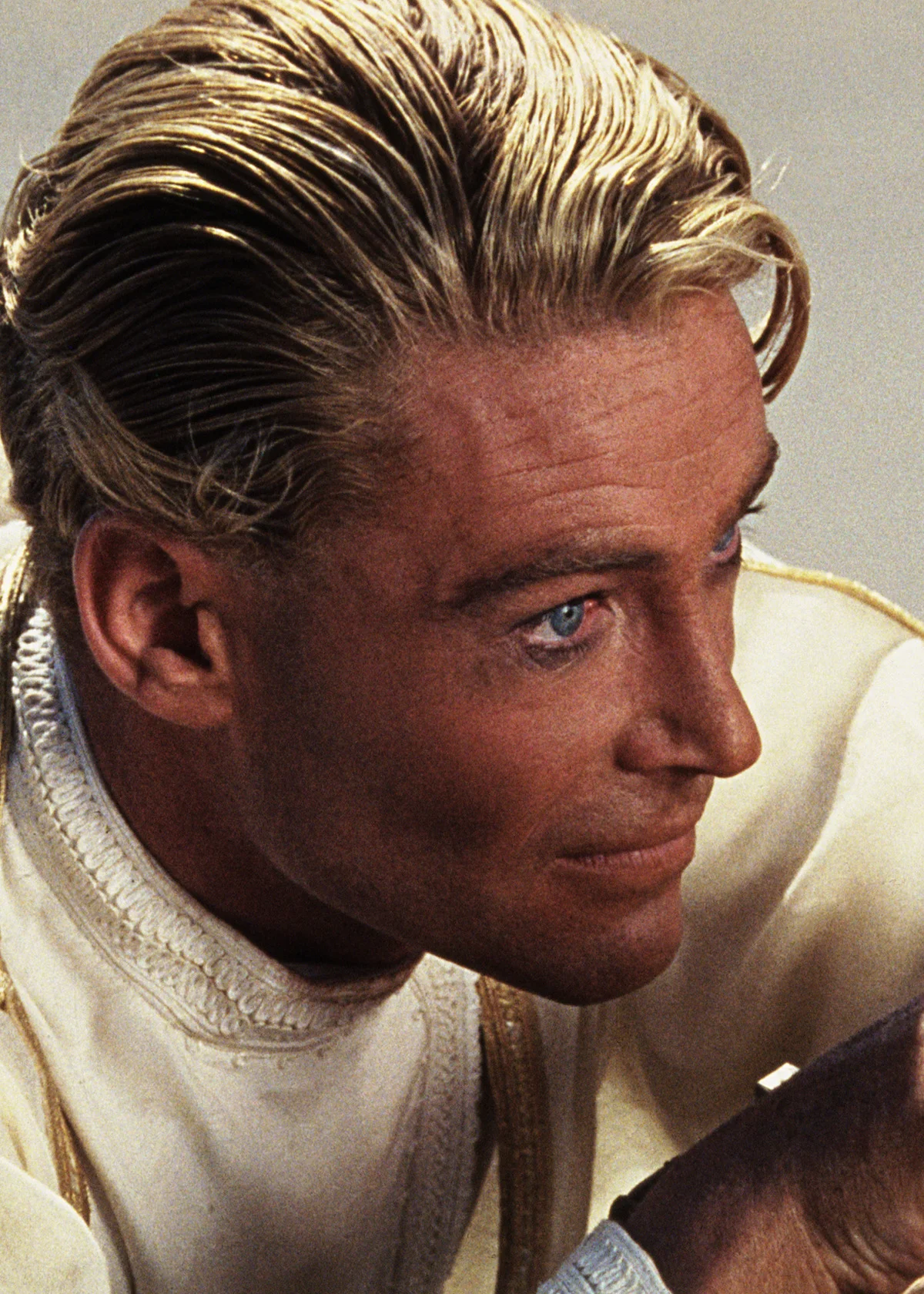 Peter O'Toole is famous for being constantly snubbed by the Academy Awards. Nominated eight times, he was
a brilliant actor. His screen debut in Lawrence of Arabia is nothing less than stunning and impactful.
As a consolation, Peter O'Toole received an Academy Honorary Award in 2003, but I know he, a true hellraiser to the
end, would've rather pissed on it. Gregory Peck of To Kill a Mockingbird was instead given the statuette.
Peter O'Toole is famous for being constantly snubbed by the Academy Awards. Nominated eight times, he was
a brilliant actor. His screen debut in Lawrence of Arabia is nothing less than stunning and impactful.
As a consolation, Peter O'Toole received an Academy Honorary Award in 2003, but I know he, a true hellraiser to the
end, would've rather pissed on it. Gregory Peck of To Kill a Mockingbird was instead given the statuette.
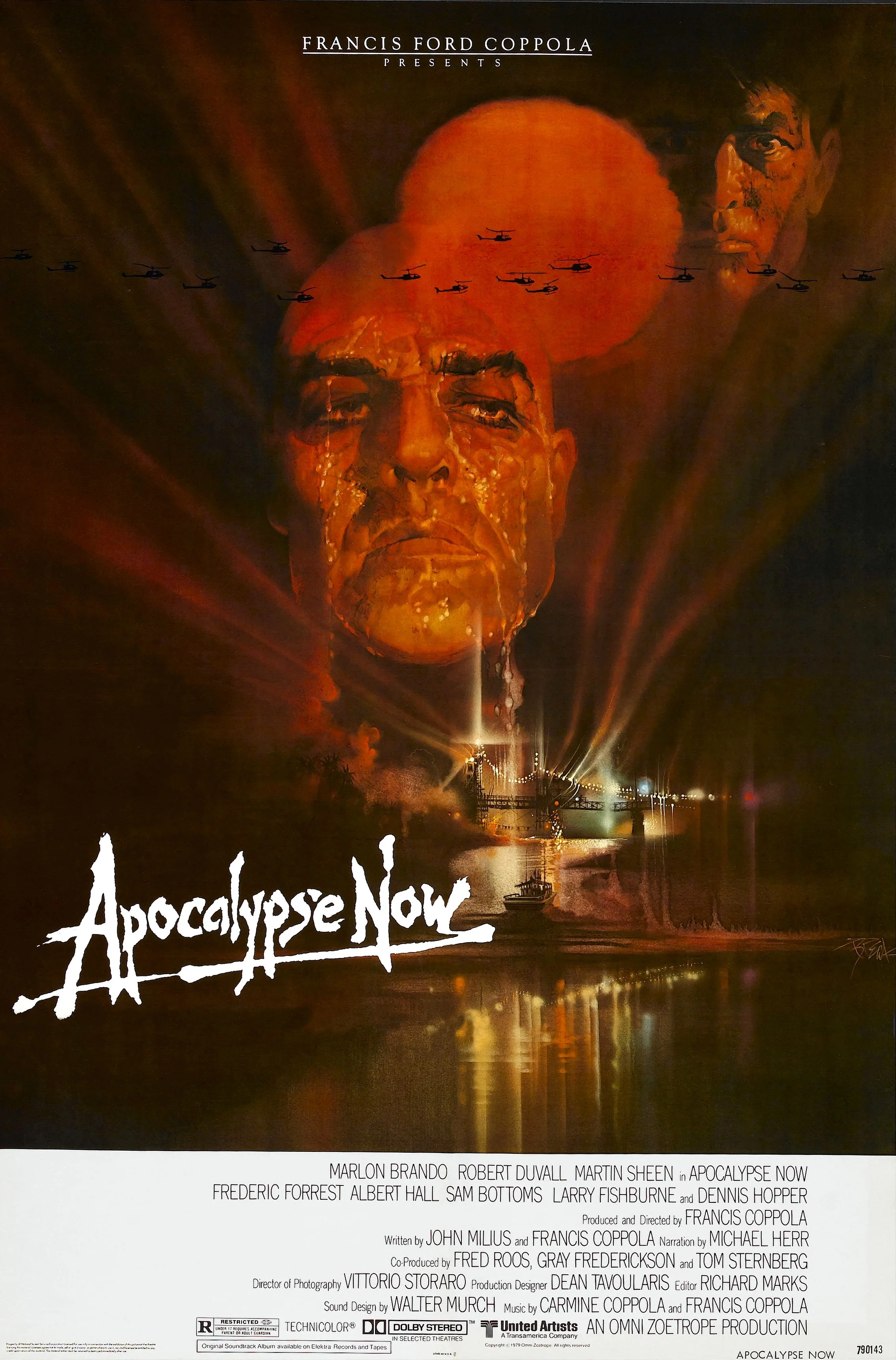 I'm sure there is a big debate of which Vietnam War picture is better: Apocalypse Now or
Platoon. Honestly, they are both outstanding with each having a different feel. Platoon focuses
on reality while Apocalypse Now is surrealistic. Having Marlon Brando on board goes a long, long way.
Hence, it's pathetic that Kramer vs. Kramer won Best Picture.
I'm sure there is a big debate of which Vietnam War picture is better: Apocalypse Now or
Platoon. Honestly, they are both outstanding with each having a different feel. Platoon focuses
on reality while Apocalypse Now is surrealistic. Having Marlon Brando on board goes a long, long way.
Hence, it's pathetic that Kramer vs. Kramer won Best Picture.
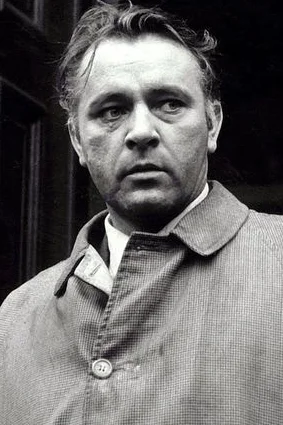 The Academy hated Richard Burton. It never gave him an honorary award, either. A powerful Welsh actor with
an incredible voice, he was nominated seven times. A case can be made for winning at least two of them,
especially for A Spy Who Came in from the Cold and Who's Afraid of Virginia Woolf? Richard Burton
made the greatest comeback of his career when he did Equus, showing everybody that he still got it.
Instead, Lee Marvin (Cat Ballou), Paul Scofield (A Man for All Seasons), and Richard Dreyfuss
(The Goodbye Girl) won.
The Academy hated Richard Burton. It never gave him an honorary award, either. A powerful Welsh actor with
an incredible voice, he was nominated seven times. A case can be made for winning at least two of them,
especially for A Spy Who Came in from the Cold and Who's Afraid of Virginia Woolf? Richard Burton
made the greatest comeback of his career when he did Equus, showing everybody that he still got it.
Instead, Lee Marvin (Cat Ballou), Paul Scofield (A Man for All Seasons), and Richard Dreyfuss
(The Goodbye Girl) won.
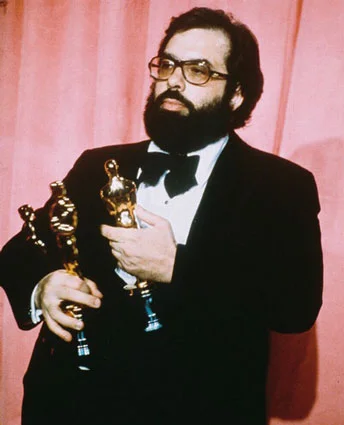 If you have seen Apocalypse Now, then you must check out Hearts of Darkness: A Filmmaker's Apocalypse,
a documentary about Francis Ford Coppola's journey of making the Vietnam War masterpiece. "We were in the jungle,
there were too many of us, we had access to too much money, too much equipment, and little by little we went
insane." The stories of what happened on the set are legendary by now. Instead, it went to Robert Benson for
Kramer vs. Kramer.
If you have seen Apocalypse Now, then you must check out Hearts of Darkness: A Filmmaker's Apocalypse,
a documentary about Francis Ford Coppola's journey of making the Vietnam War masterpiece. "We were in the jungle,
there were too many of us, we had access to too much money, too much equipment, and little by little we went
insane." The stories of what happened on the set are legendary by now. Instead, it went to Robert Benson for
Kramer vs. Kramer.
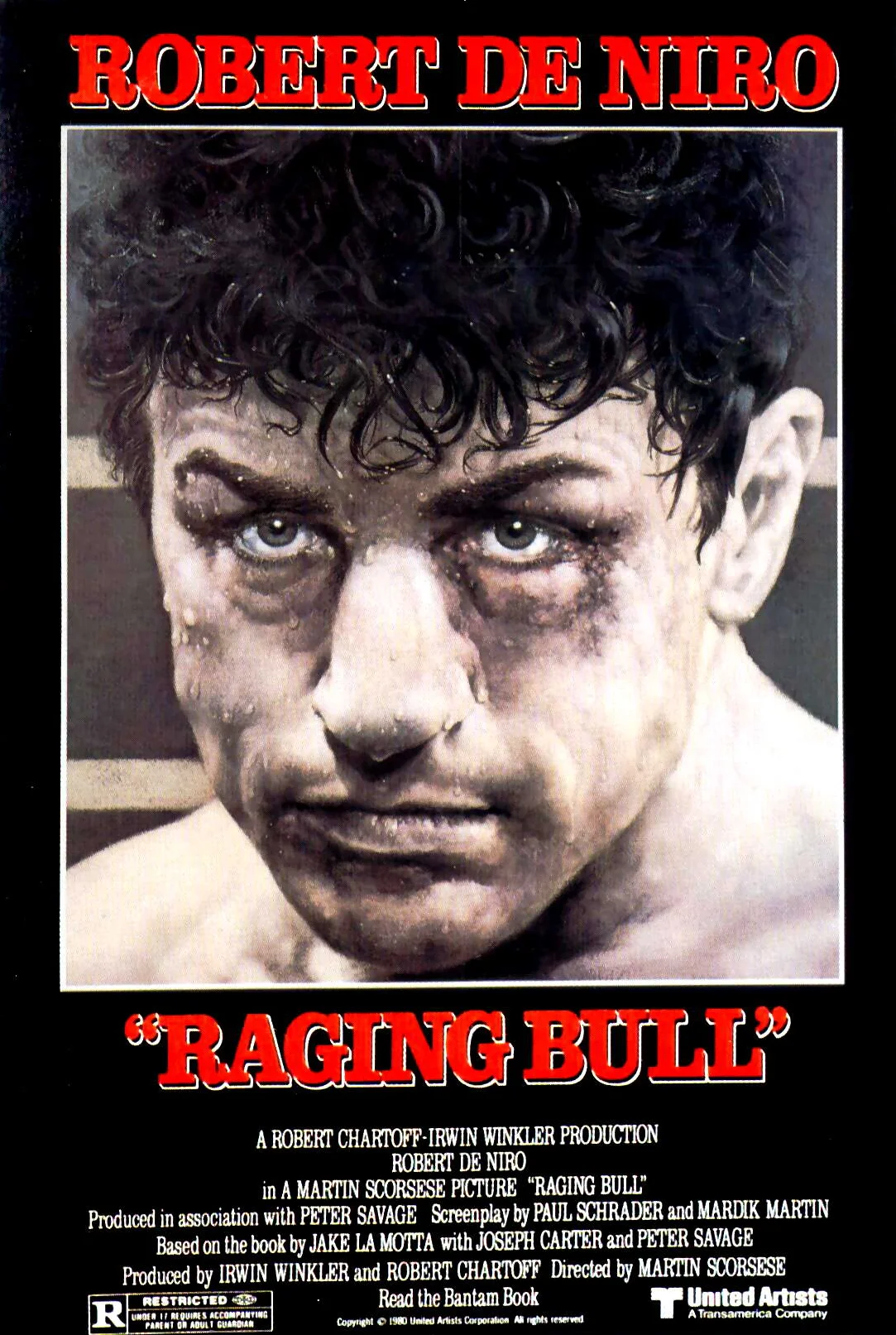 It's hard to believe that Ordinary People won Best Picture when it's clear Raging Bull is superior in
every aspect. The genesis of the film is Robert De Niro getting Martin Scorsese to direct it after he first
read the eponymous book by Jake LaMotta, and the rest is history. Who can forget the powerful black-and-white
cinematography with Robert De Niro at his best?
It's hard to believe that Ordinary People won Best Picture when it's clear Raging Bull is superior in
every aspect. The genesis of the film is Robert De Niro getting Martin Scorsese to direct it after he first
read the eponymous book by Jake LaMotta, and the rest is history. Who can forget the powerful black-and-white
cinematography with Robert De Niro at his best?
 The Oscar for Best Actor should've gone to Morgan Freeman for Lean on Me. Nobody was better that year.
What a magnificent performance he gave. It's the singular reason why the film continues to stand the test of
time. Strangely, although Daniel Day-Lewis won the Oscar for My Left Foot, the boy Hugh O'Conor
did the bulk of the work but wasn't recognized for it.
The Oscar for Best Actor should've gone to Morgan Freeman for Lean on Me. Nobody was better that year.
What a magnificent performance he gave. It's the singular reason why the film continues to stand the test of
time. Strangely, although Daniel Day-Lewis won the Oscar for My Left Foot, the boy Hugh O'Conor
did the bulk of the work but wasn't recognized for it.
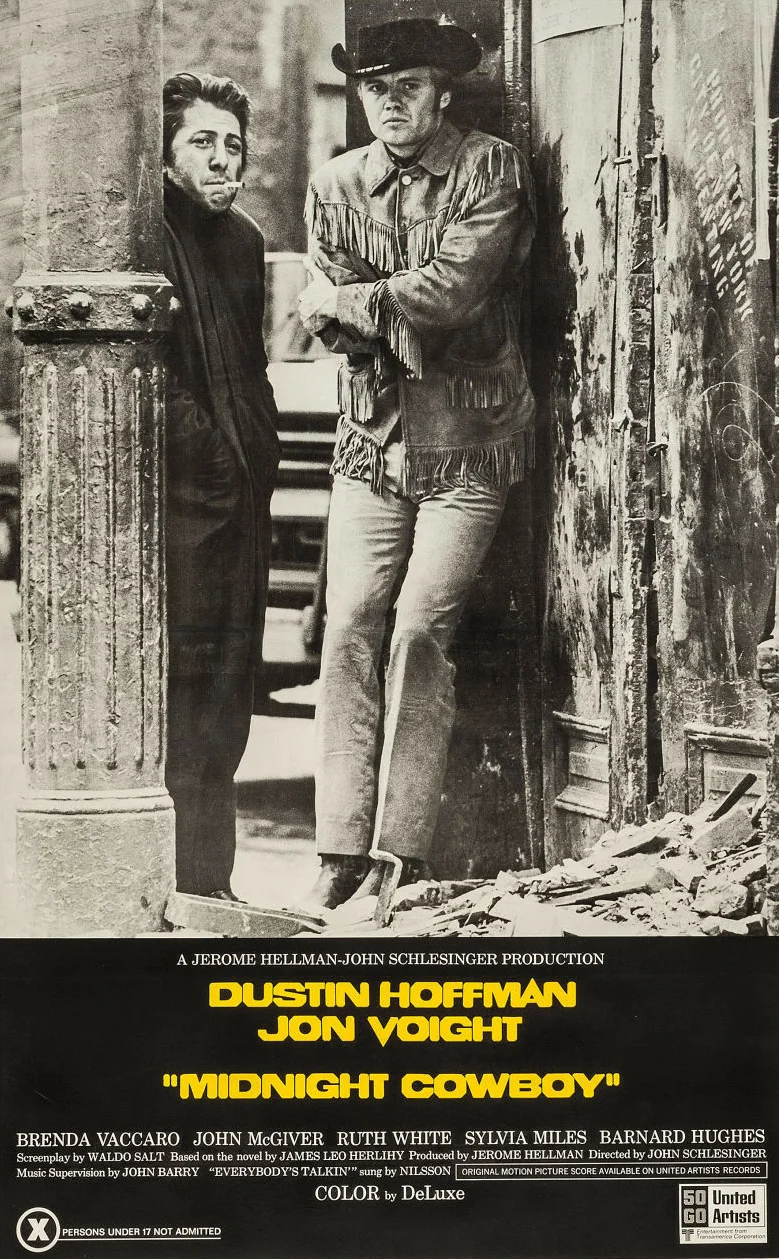 The Academy messed up big time when John Wayne won the Best Actor Oscar for True Grit, which is widely
acknowledged as a reward for his many years of service, over Jon Voight for Midnight Cowboy. Then,
it messed up by putting Dustin Hoffman in the wrong category, that was won by Gig Young for
They Shoot Horses, Don't They?, when he was really a sidekick. What can I say? It's the performance
of their careers.
The Academy messed up big time when John Wayne won the Best Actor Oscar for True Grit, which is widely
acknowledged as a reward for his many years of service, over Jon Voight for Midnight Cowboy. Then,
it messed up by putting Dustin Hoffman in the wrong category, that was won by Gig Young for
They Shoot Horses, Don't They?, when he was really a sidekick. What can I say? It's the performance
of their careers.
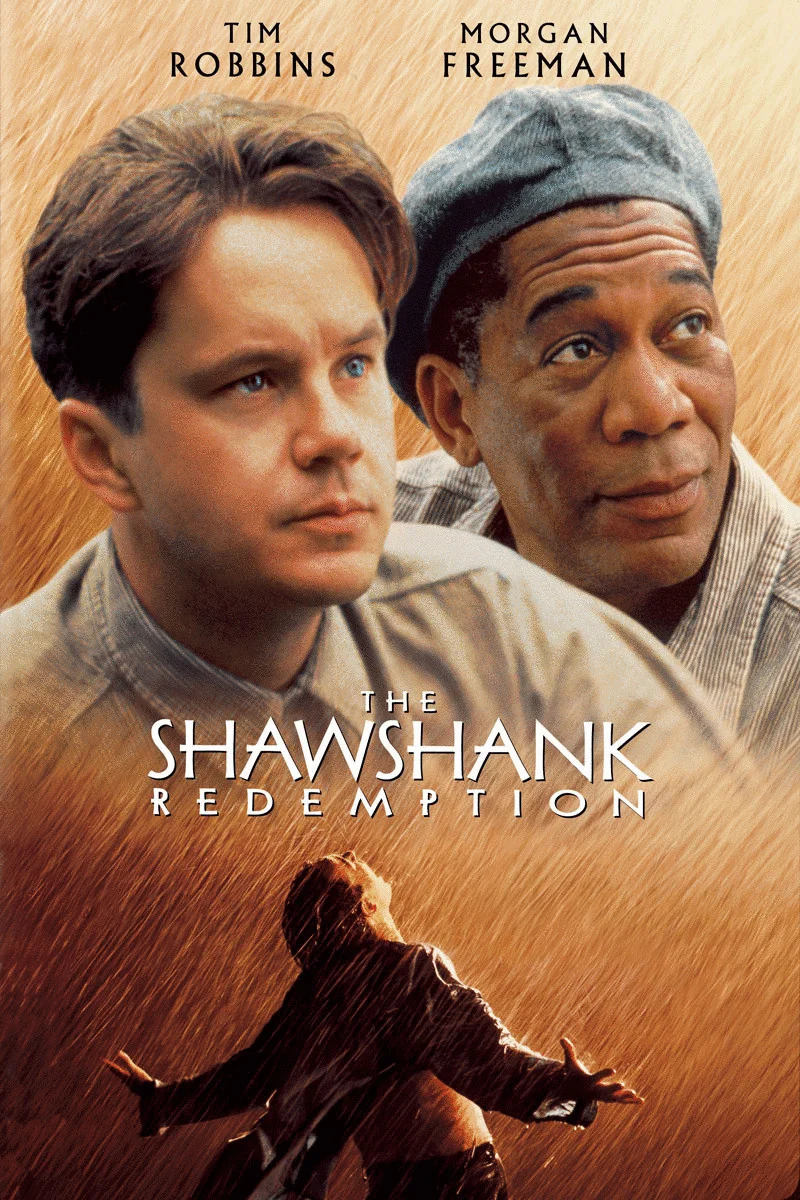 Like It's a Wonderful Life, The Shawshank Redemption is one of those films that take a while to
achieve the "classic" status because it was initially a box-office failure despite being nominated for seven
Academy Awards. The biggest reason for it is that Pulp Fiction and Forrest Gump (Best Picture
Winner) ruled cinema in 1994. As time passes, it's gradually clear that The Shawshank Redemption is
the superior picture.
Like It's a Wonderful Life, The Shawshank Redemption is one of those films that take a while to
achieve the "classic" status because it was initially a box-office failure despite being nominated for seven
Academy Awards. The biggest reason for it is that Pulp Fiction and Forrest Gump (Best Picture
Winner) ruled cinema in 1994. As time passes, it's gradually clear that The Shawshank Redemption is
the superior picture.
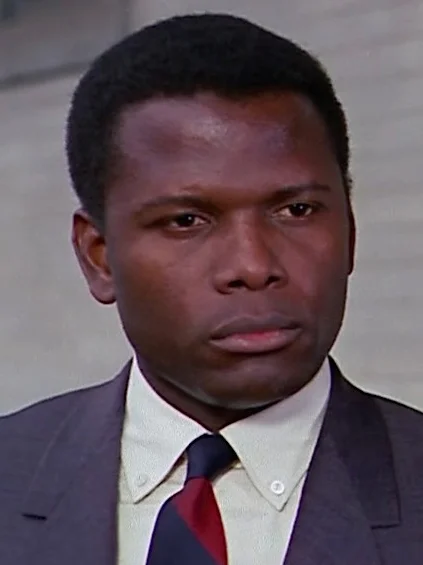 Rod Steiger for In the Heat of the Night? Ha! As great as he is, Sidney Poitier should've
been the Oscar winner for his role of Virgil Tibbs. He's unforgettable when his character warned, "They call
me MISTER Tibbs!" and slapped back Mr. Endicott after being slapped in the face. You could hear a pin drop in
the middle of the Deep South during that moment.
Rod Steiger for In the Heat of the Night? Ha! As great as he is, Sidney Poitier should've
been the Oscar winner for his role of Virgil Tibbs. He's unforgettable when his character warned, "They call
me MISTER Tibbs!" and slapped back Mr. Endicott after being slapped in the face. You could hear a pin drop in
the middle of the Deep South during that moment.
 Steven Spielberg is the greatest director ever lived. He has made a masterpiece in just about every genre
there is. But he never got the Best Director nomination for Jaws. How can that be? The man practically
invented the trend of summer blockbuster pictures. If they knew of the story and all the problems behind
the scenes, it's amazing how Steven Spielberg was able to pull it off while making Bruce look real. The winner
was Miloš Forman for One Flew Over the Cuckoo's Nest.
Steven Spielberg is the greatest director ever lived. He has made a masterpiece in just about every genre
there is. But he never got the Best Director nomination for Jaws. How can that be? The man practically
invented the trend of summer blockbuster pictures. If they knew of the story and all the problems behind
the scenes, it's amazing how Steven Spielberg was able to pull it off while making Bruce look real. The winner
was Miloš Forman for One Flew Over the Cuckoo's Nest.
 Not to be missed in Equus is Peter Firth's intense, show-stealing Oscar-nominated performance as Alan
Strang. I'm surprised he, having played the character over a thousand times on stage, didn't win the award
because it's one of the best jobs I've seen out of anyone in the history of motion pictures. Oddly, it went to
Jason Robards for Julia.
Not to be missed in Equus is Peter Firth's intense, show-stealing Oscar-nominated performance as Alan
Strang. I'm surprised he, having played the character over a thousand times on stage, didn't win the award
because it's one of the best jobs I've seen out of anyone in the history of motion pictures. Oddly, it went to
Jason Robards for Julia.
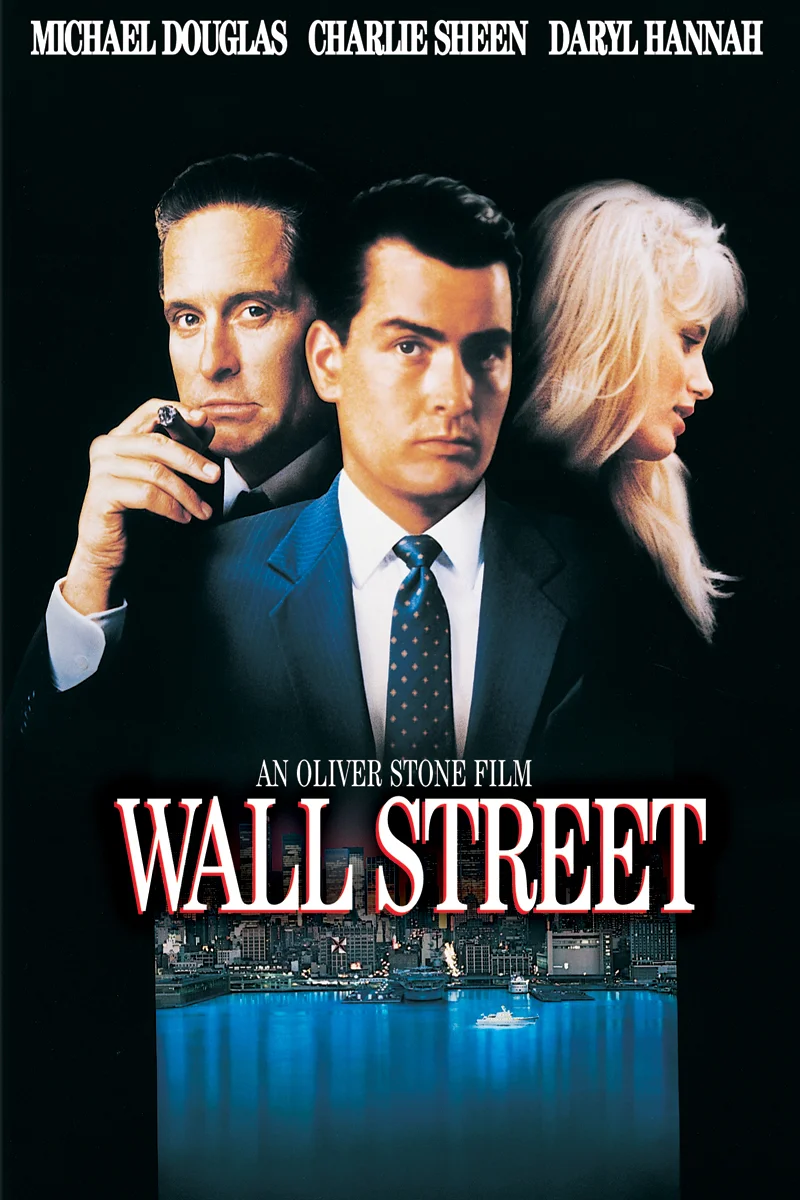 The über famous Gordon Gekko imparts his ever pearls of wisdom such as: "I'm talking about liquid. Rich enough
to have your own jet. Rich enough not to waste time. Fifty, a hundred million dollars, buddy. A player. Or
nothing." "Ever wonder why fund managers can't beat the S&P 500? 'Cause they're sheep, and sheep get
slaughtered." "The point is, ladies and gentleman, that greed, for lack of a better word, is good." How boring
is John Patrick Shanley receiving the Oscar for Moonstruck.
The über famous Gordon Gekko imparts his ever pearls of wisdom such as: "I'm talking about liquid. Rich enough
to have your own jet. Rich enough not to waste time. Fifty, a hundred million dollars, buddy. A player. Or
nothing." "Ever wonder why fund managers can't beat the S&P 500? 'Cause they're sheep, and sheep get
slaughtered." "The point is, ladies and gentleman, that greed, for lack of a better word, is good." How boring
is John Patrick Shanley receiving the Oscar for Moonstruck.
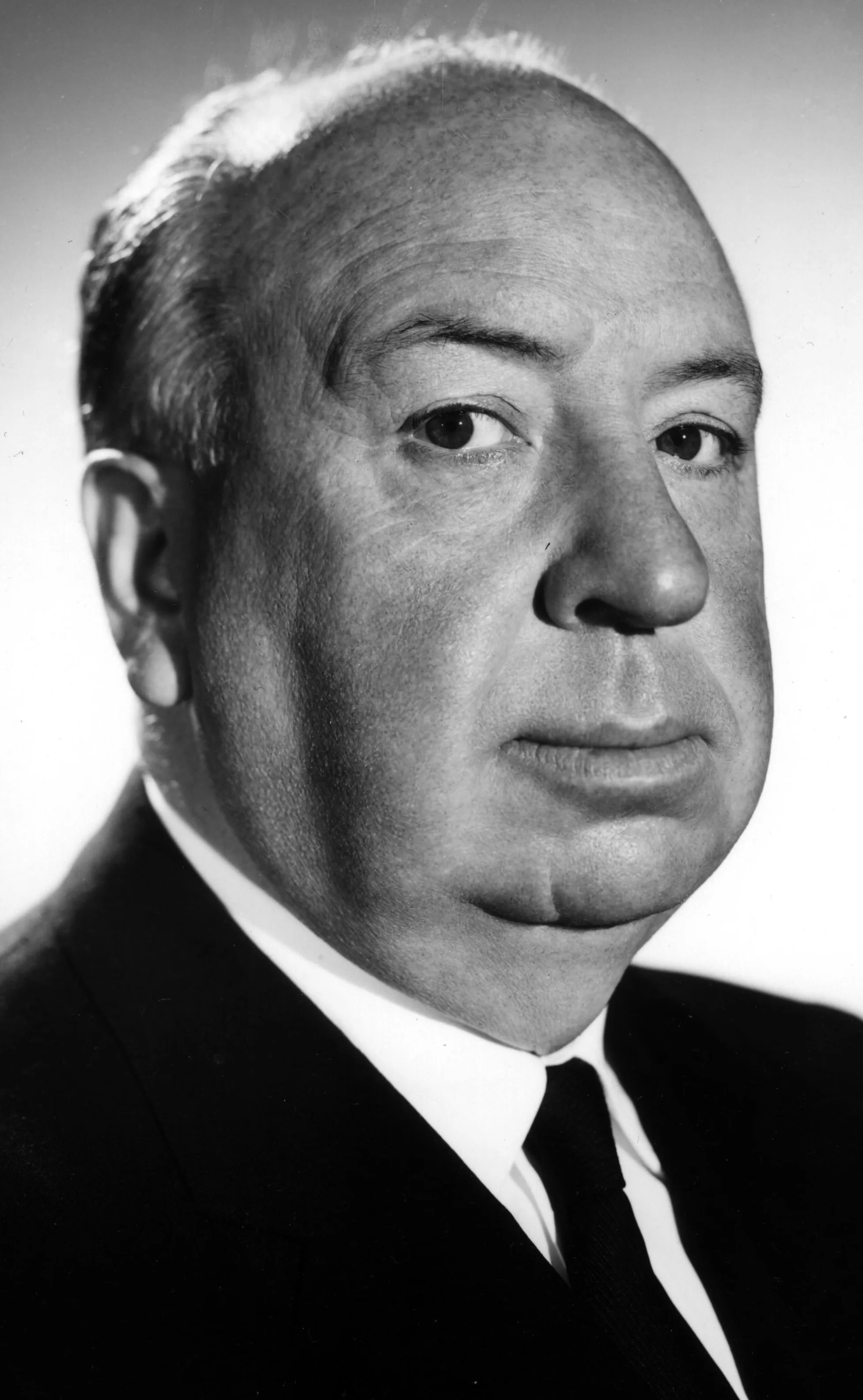 When Psycho came out, it set attendance records in many countries and saw long lines outside of theatres.
Shot for less than one million dollars, the sexual-psychological thriller went on to be Alfred Hitchcock's
highest grossing film ever. What's interesting is it's his first horror movie which became the game changer of
the slasher genre. Unfortunately, Billy Wilder won the Oscar for The Apartment.
When Psycho came out, it set attendance records in many countries and saw long lines outside of theatres.
Shot for less than one million dollars, the sexual-psychological thriller went on to be Alfred Hitchcock's
highest grossing film ever. What's interesting is it's his first horror movie which became the game changer of
the slasher genre. Unfortunately, Billy Wilder won the Oscar for The Apartment.
 Before there was Norman Bates, there was Cody Jarrett. James Cagney gives the greatest performance of his
career in White Heat. His "Made it, Ma! Top of the world!" scene is among the all-time best endings
ever. What he did with the prison cafeteria scene when Cody found out what happened to his mother is legendary.
That moment takes real skill to pull off which makes James Cagney special. The Oscar was given to Broderick
Crawford for All the King's Men.
Before there was Norman Bates, there was Cody Jarrett. James Cagney gives the greatest performance of his
career in White Heat. His "Made it, Ma! Top of the world!" scene is among the all-time best endings
ever. What he did with the prison cafeteria scene when Cody found out what happened to his mother is legendary.
That moment takes real skill to pull off which makes James Cagney special. The Oscar was given to Broderick
Crawford for All the King's Men.
 Quotable movies get attention. The more great lines there are, the better. Hence, Michael Schiffer wrote a
terrific one for Lean on Me. "If we treat our students like animals, that's exactly how they'll behave!"
"This is an institution of learning. If you can't control it, how can you teach?" "I saw the lightning flash.
I heard the thunder roll! I felt breakers crashing, swamping my soul." "You smoke crack, don't you?" Tom
Schulman got it for a cheesy movie called Dead Poets Society.
Quotable movies get attention. The more great lines there are, the better. Hence, Michael Schiffer wrote a
terrific one for Lean on Me. "If we treat our students like animals, that's exactly how they'll behave!"
"This is an institution of learning. If you can't control it, how can you teach?" "I saw the lightning flash.
I heard the thunder roll! I felt breakers crashing, swamping my soul." "You smoke crack, don't you?" Tom
Schulman got it for a cheesy movie called Dead Poets Society.
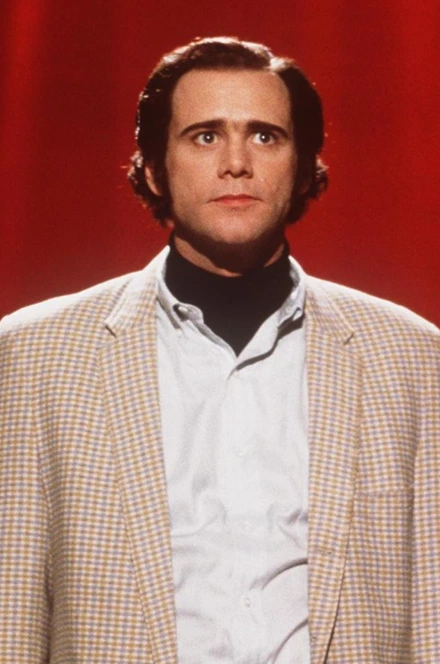 How did the Academy Awards overlook Jim Carrey for Best Actor? He gave the greatest performance ever in
Man on the Moon and thus should've won it. At first, I didn't think Jim Carrey could be Andy Kaufman
because it's almost impossible to capture the real person if video evidence exists, but he floored me not long,
especially after doing an impersonation of Tony Clifton. It's safe to say that he out-Andy'ed Andy Kaufman and
was even funnier. Instead, the Oscar laughably went to Kevin Spacey for American Beauty.
How did the Academy Awards overlook Jim Carrey for Best Actor? He gave the greatest performance ever in
Man on the Moon and thus should've won it. At first, I didn't think Jim Carrey could be Andy Kaufman
because it's almost impossible to capture the real person if video evidence exists, but he floored me not long,
especially after doing an impersonation of Tony Clifton. It's safe to say that he out-Andy'ed Andy Kaufman and
was even funnier. Instead, the Oscar laughably went to Kevin Spacey for American Beauty.
 It's unebelievable that Steven Spielberg had been passed over many times by the Academy Awards. Are they
stupid or what? Close Encounters of the Third Kind, Raiders of the Lost Ark,
The Color Purple, and now this: E.T. the Extra-Terrestrial. It's arguably one of the
greatest movies of all time. Instead, they gave it to Richard Attenborough for Gandhi.
It's unebelievable that Steven Spielberg had been passed over many times by the Academy Awards. Are they
stupid or what? Close Encounters of the Third Kind, Raiders of the Lost Ark,
The Color Purple, and now this: E.T. the Extra-Terrestrial. It's arguably one of the
greatest movies of all time. Instead, they gave it to Richard Attenborough for Gandhi.
 The Daniel Day-Lewis of his time, Paul Muni is one of the greatest actors ever lived. He didn't do many films,
having starred in only 23 before retiring early due to health problems. When Paul Muni played a character,
he became the character, doing exactly that for The Life of Emile Zola. Instead, they gave it
to Spencer Tracy for Captains Courageous.
The Daniel Day-Lewis of his time, Paul Muni is one of the greatest actors ever lived. He didn't do many films,
having starred in only 23 before retiring early due to health problems. When Paul Muni played a character,
he became the character, doing exactly that for The Life of Emile Zola. Instead, they gave it
to Spencer Tracy for Captains Courageous.
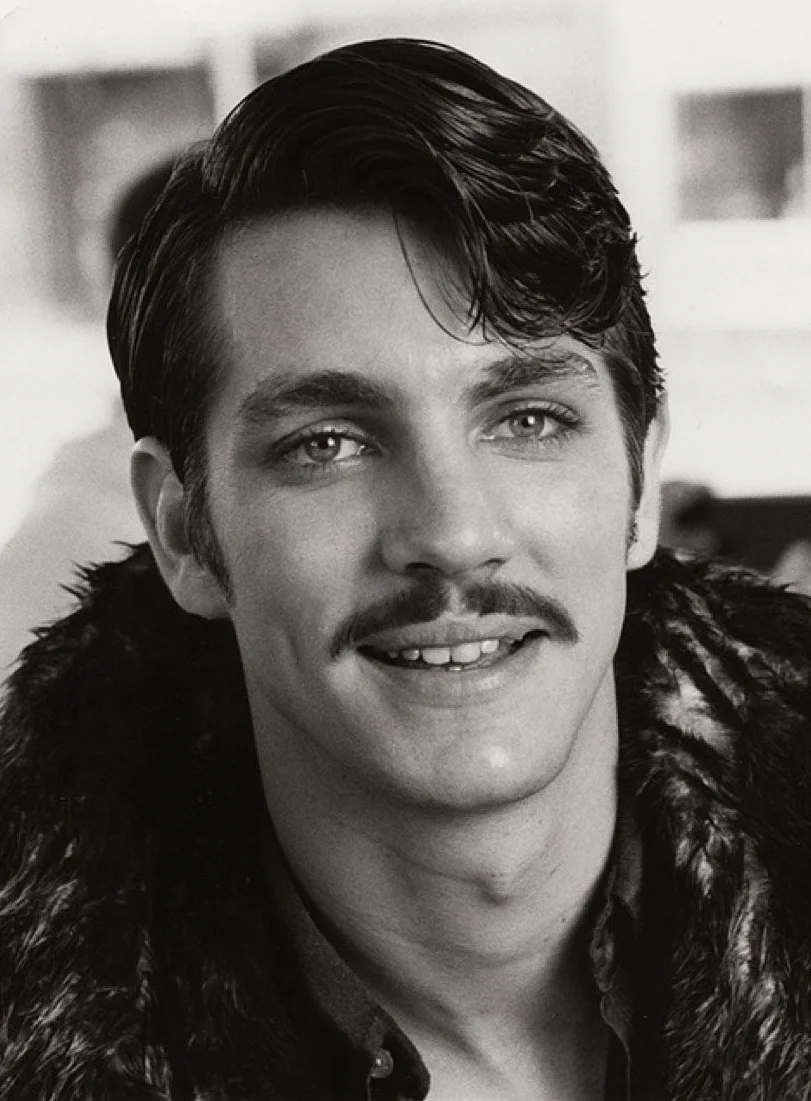 Because of his "personality of a pimp," Eric Roberts is captivating in Star 80 by giving the performance
of his career. Unbelievably, how was he not nominated for an Oscar, let alone win it? I don't think there will
be a better or more realistic characterization of somebody with bipolar behavior that's taken to the extreme.
By all accounts, Eric Roberts' portrayal of Paul Snider was "right on the money." It went to Robert Duvall for his
mediocre performance in Tender Mercies.
Because of his "personality of a pimp," Eric Roberts is captivating in Star 80 by giving the performance
of his career. Unbelievably, how was he not nominated for an Oscar, let alone win it? I don't think there will
be a better or more realistic characterization of somebody with bipolar behavior that's taken to the extreme.
By all accounts, Eric Roberts' portrayal of Paul Snider was "right on the money." It went to Robert Duvall for his
mediocre performance in Tender Mercies.
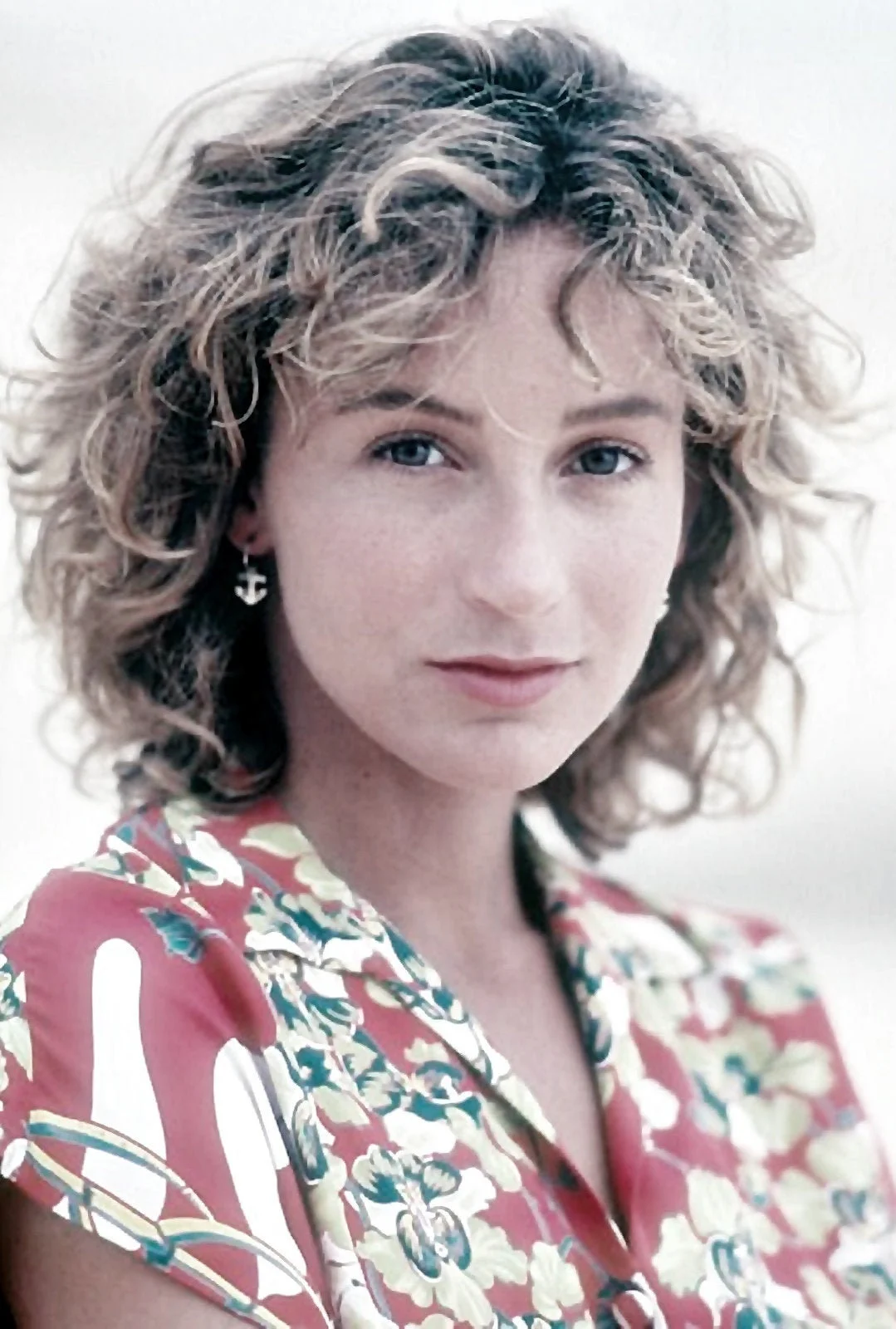 If anyone deserved an Oscar win, it's Jennifer Grey. She's perfect. What's amazing about her performance is
how well she plays the awkwardness part without being corny. Prior to being cast, Jennifer Grey didn't want
to work with Patrick Swayze again after Red Dawn. He had to persuade her before she finally relented,
and the rest is history. Cher ended up getting it for Moonstruck.
If anyone deserved an Oscar win, it's Jennifer Grey. She's perfect. What's amazing about her performance is
how well she plays the awkwardness part without being corny. Prior to being cast, Jennifer Grey didn't want
to work with Patrick Swayze again after Red Dawn. He had to persuade her before she finally relented,
and the rest is history. Cher ended up getting it for Moonstruck.
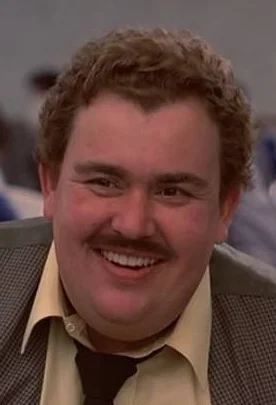 If there's any performance the Academy Award voters completely missed during the 80's, it's John Candy's for
Planes, Trains & Automobiles. What happened to recognition for comedy films? It seems they only hand
out Oscars for dramas and musicals. That's boring. There's no question Del Griffith is an all-time classic.
If I think about the film, he's the first thing that comes to my mind. Sean Connery got the overrated win
for The Untouchables.
If there's any performance the Academy Award voters completely missed during the 80's, it's John Candy's for
Planes, Trains & Automobiles. What happened to recognition for comedy films? It seems they only hand
out Oscars for dramas and musicals. That's boring. There's no question Del Griffith is an all-time classic.
If I think about the film, he's the first thing that comes to my mind. Sean Connery got the overrated win
for The Untouchables.
 Out is the Old Hollywood, in is the New Hollywood which happens all in one fell swoop through two hours of
A Streetcar Named Desire. Pitting Vivien Leigh's classical acting against Marlon Brando's realism, a
change of the guard has taken place. The battle of these two styles is unlike anything ever seen in cinema
history or since then, making everybody forget this film is supposed to be a theatrical play. Unbelievably,
the award went to An American in Paris.
Out is the Old Hollywood, in is the New Hollywood which happens all in one fell swoop through two hours of
A Streetcar Named Desire. Pitting Vivien Leigh's classical acting against Marlon Brando's realism, a
change of the guard has taken place. The battle of these two styles is unlike anything ever seen in cinema
history or since then, making everybody forget this film is supposed to be a theatrical play. Unbelievably,
the award went to An American in Paris.
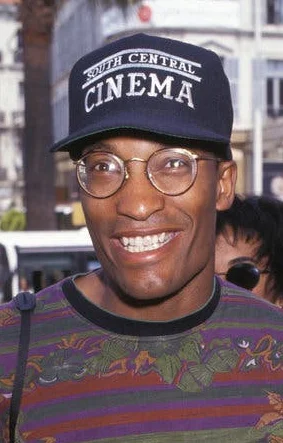 John Singleton left behind a legacy that began with Boyz n the Hood. Look no further than the edgy
opening sequence that set the tone for the rest of the film. The scene with Ricky and Tre, after seeing the
red Hyundai Excel, is unforgettable and powerful. Thelma & Louise's Callie Khouri got it instead.
John Singleton left behind a legacy that began with Boyz n the Hood. Look no further than the edgy
opening sequence that set the tone for the rest of the film. The scene with Ricky and Tre, after seeing the
red Hyundai Excel, is unforgettable and powerful. Thelma & Louise's Callie Khouri got it instead.
 You must be joking me that Billy Bob Thornton didn't win the Oscar for Sling Blade (it went to
Shine's Geoffrey Rush). Go ahead and watch the film yourself. And then take a look at Billy Bob
when he's back to himself. Showing a mix of dumb and (more of) intelligence, Karl Childers will live forever
as one of the great icons in cinema. It's hard to forget the six-minute scene
when he tells his life story which has to be one of the finest ways to introduce a character.
You must be joking me that Billy Bob Thornton didn't win the Oscar for Sling Blade (it went to
Shine's Geoffrey Rush). Go ahead and watch the film yourself. And then take a look at Billy Bob
when he's back to himself. Showing a mix of dumb and (more of) intelligence, Karl Childers will live forever
as one of the great icons in cinema. It's hard to forget the six-minute scene
when he tells his life story which has to be one of the finest ways to introduce a character.
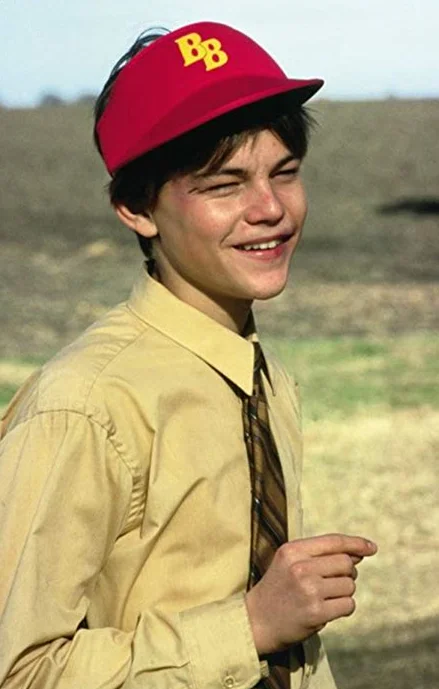 Leonardo DiCaprio's performance in What's Eating Gilbert Grape is astonishing. It's nearly the only
reason to watch the film over and over. Tommy Lee Jones won it for The Fugitive which is a joke because
that was actually a leading role. Hence, it sets up Leonardo DiCaprio for a difficult competition against Ralph
Fiennes of Schindler's List.
Leonardo DiCaprio's performance in What's Eating Gilbert Grape is astonishing. It's nearly the only
reason to watch the film over and over. Tommy Lee Jones won it for The Fugitive which is a joke because
that was actually a leading role. Hence, it sets up Leonardo DiCaprio for a difficult competition against Ralph
Fiennes of Schindler's List.
 The back of the DVD cover for Papillon reads: "Not just a great escape. It was the greatest." Well,
it should be amended to "Not just a great Steve McQueen performance. It was the greatest." His collaboration
with Dustin Hoffman is something special. Their characters feed off each other
while being stuck in a humid jungle environment at some faraway foreign country. Disappointingly, the Oscar
went to Jack Lemmon for Save the Tiger.
The back of the DVD cover for Papillon reads: "Not just a great escape. It was the greatest." Well,
it should be amended to "Not just a great Steve McQueen performance. It was the greatest." His collaboration
with Dustin Hoffman is something special. Their characters feed off each other
while being stuck in a humid jungle environment at some faraway foreign country. Disappointingly, the Oscar
went to Jack Lemmon for Save the Tiger.
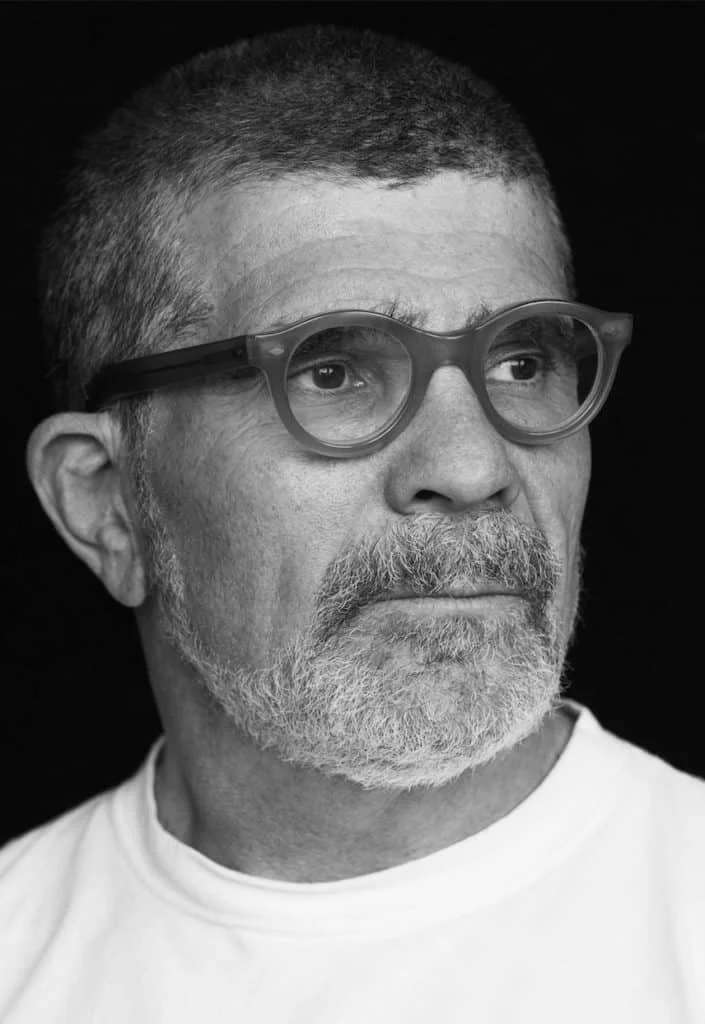 Death of a Fuckin' Salesman is how the all-star cast described Glengarry Glen Ross which started
out as a play that won David Mamet the Pulitzer Prize in 1984. His dialogue is crafty and delightful to listen
to, and the carefully created parallel threads make the intertwining story compelling to follow. Every character
has weaknesses, and that's why most of them weren't born to be a salesman. Anyway, Ruth Prawer Jhabvala got it
for Howards End.
Death of a Fuckin' Salesman is how the all-star cast described Glengarry Glen Ross which started
out as a play that won David Mamet the Pulitzer Prize in 1984. His dialogue is crafty and delightful to listen
to, and the carefully created parallel threads make the intertwining story compelling to follow. Every character
has weaknesses, and that's why most of them weren't born to be a salesman. Anyway, Ruth Prawer Jhabvala got it
for Howards End.
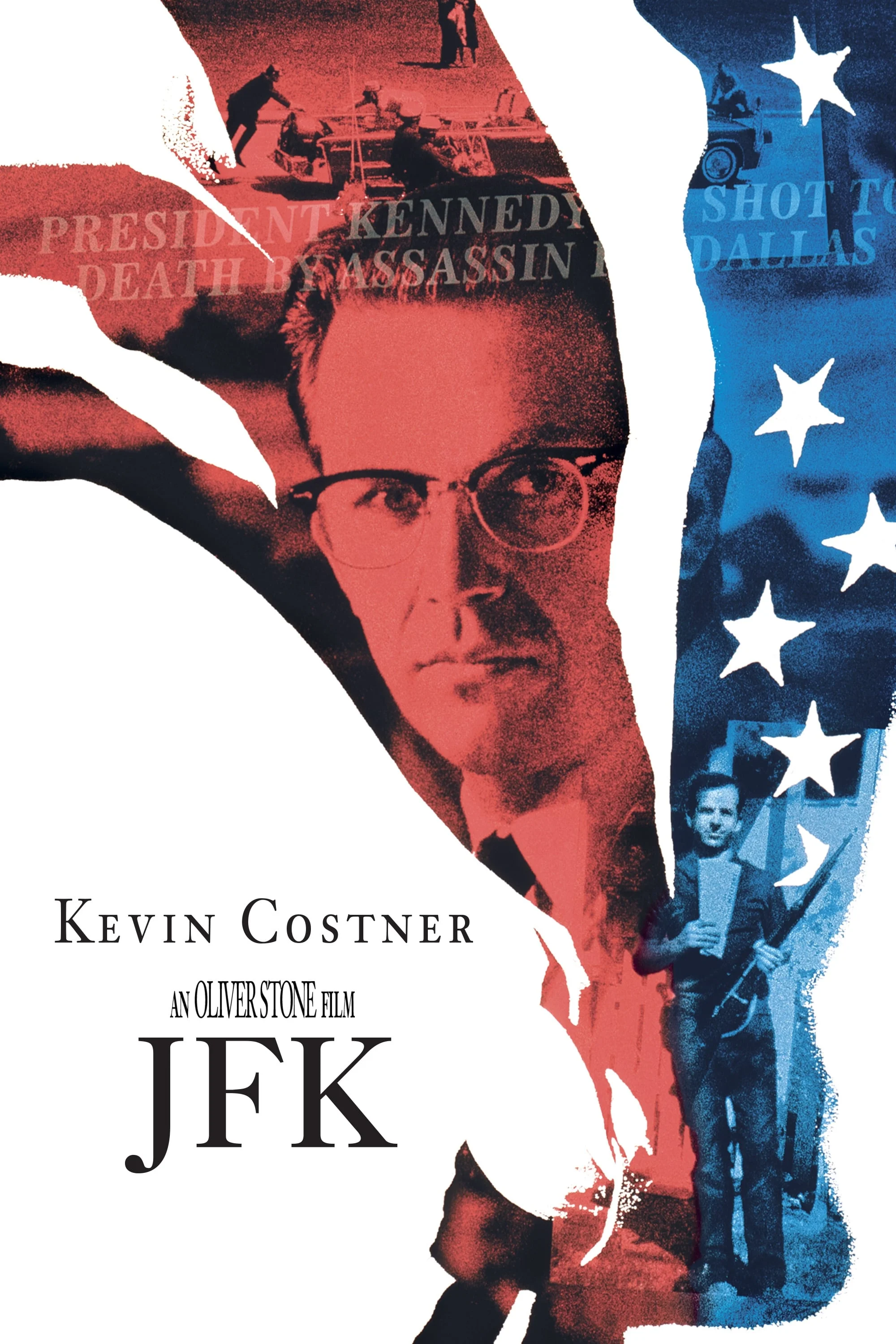 JFK is an incredible masterpiece, representing Oliver Stone's best. Outstanding are the acting,
storytelling, and, most of all, editing. The best moment is when Jim Garrison, after learning the real plot
from Donald Sutherland's character, summed up the startling discovery by saying, "The size of this is...beyond
me." The Silence of the Lambs got Best Picture instead.
JFK is an incredible masterpiece, representing Oliver Stone's best. Outstanding are the acting,
storytelling, and, most of all, editing. The best moment is when Jim Garrison, after learning the real plot
from Donald Sutherland's character, summed up the startling discovery by saying, "The size of this is...beyond
me." The Silence of the Lambs got Best Picture instead.
 In The Doors, Val Kilmer didn't just play Jim Morrison; he became Jim Morrison. None of the actual
band members had any issues with Val's performance as they frequently couldn't tell his voice apart from Jim
Morrison's. The best scene is when Kyle MacLachlan had an unbelievable vision of Val Kilmer onstage dancing
around with a couple of American Indians. Receiving the award for his completely overblown performance in
The Silence of the Lambs is Anthony Hopkins.
In The Doors, Val Kilmer didn't just play Jim Morrison; he became Jim Morrison. None of the actual
band members had any issues with Val's performance as they frequently couldn't tell his voice apart from Jim
Morrison's. The best scene is when Kyle MacLachlan had an unbelievable vision of Val Kilmer onstage dancing
around with a couple of American Indians. Receiving the award for his completely overblown performance in
The Silence of the Lambs is Anthony Hopkins.
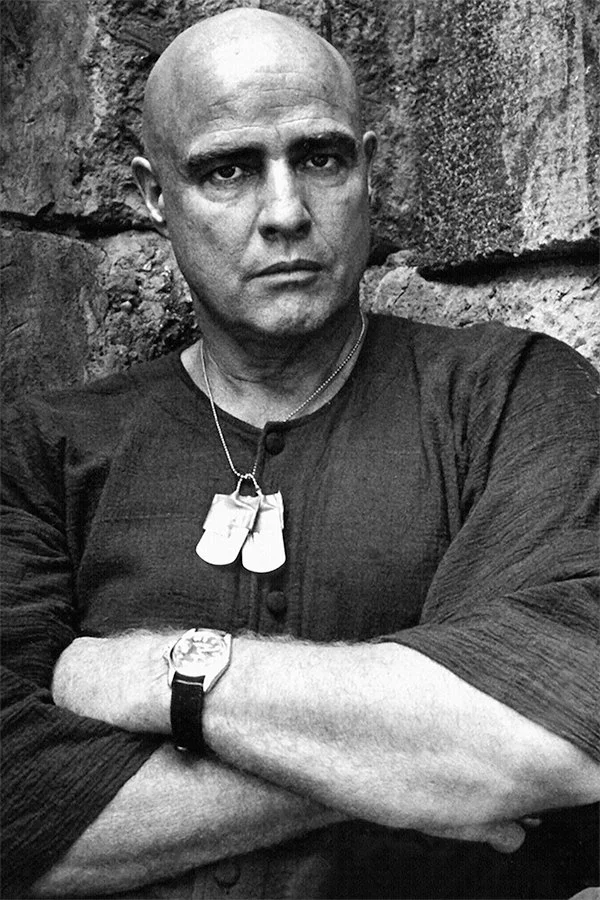 There are many great performances in Apocalypse Now, but Marlon Brando takes the cake as Colonel
Walter Kurtz. He showed up on the set overweight, and director Francis Ford Coppola couldn't believe it.
They had to come up with ideas to hide his body, and the result is Brando appearing mythical which paid
dividends for the film. He also learned a lot about shadows from Yul Brynner during the filming of
Morituri. Anyway, Melvyn Douglas won it for Being There.
There are many great performances in Apocalypse Now, but Marlon Brando takes the cake as Colonel
Walter Kurtz. He showed up on the set overweight, and director Francis Ford Coppola couldn't believe it.
They had to come up with ideas to hide his body, and the result is Brando appearing mythical which paid
dividends for the film. He also learned a lot about shadows from Yul Brynner during the filming of
Morituri. Anyway, Melvyn Douglas won it for Being There.
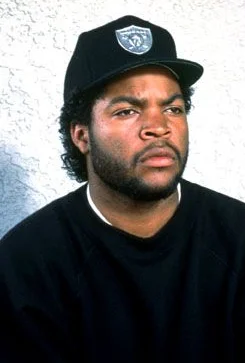 Ice Cube gives the most brilliant performance of Boyz n the Hood, especially how he delivered his
lines. What a surprise he wasn't nominated for an Oscar, let alone winning it. When I think of the movie,
Doughboy first comes to my mind. Jack Palance won it instead for City Slickers.
Ice Cube gives the most brilliant performance of Boyz n the Hood, especially how he delivered his
lines. What a surprise he wasn't nominated for an Oscar, let alone winning it. When I think of the movie,
Doughboy first comes to my mind. Jack Palance won it instead for City Slickers.
 There's no finer example of being in a war than the opening scene of Saving Private Ryan when the men
are ready to come out of the Higgins boats during D-Day on the beaches of Normandy, France. It goes without
saying it's the most realistically-shot WWII picture, putting Battle of the Bulge and
The Longest Day to shame. Miramax paid a lot of money to make sure the award went to
Shakespeare in Love which is now regarded as the worst Best Picture Winner of the 90's.
There's no finer example of being in a war than the opening scene of Saving Private Ryan when the men
are ready to come out of the Higgins boats during D-Day on the beaches of Normandy, France. It goes without
saying it's the most realistically-shot WWII picture, putting Battle of the Bulge and
The Longest Day to shame. Miramax paid a lot of money to make sure the award went to
Shakespeare in Love which is now regarded as the worst Best Picture Winner of the 90's.
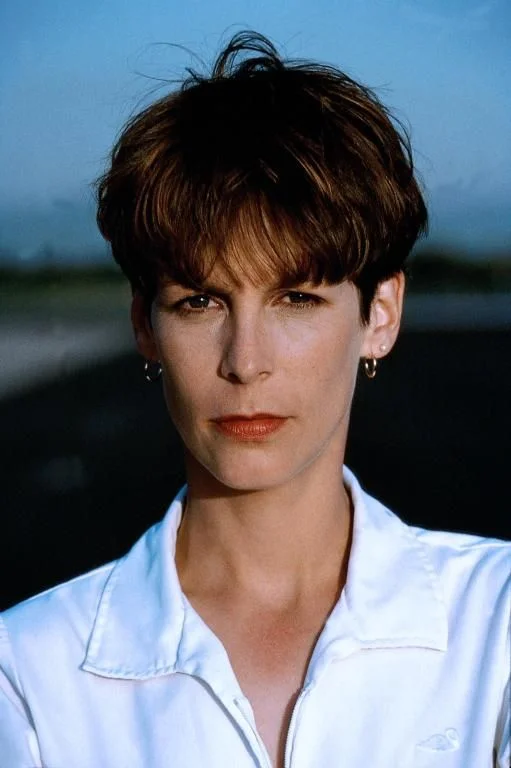 A Fish Called Wanda is one of the wackiest, funniest pictures made. Kevin Kline is beyond brilliant as
"Don't Call Me Stupid" Otto. "It's K-K-K-Ken! C-c-c-coming to k-k-k-kill me! How you gonna c-c-c-catch me,
K-K-K-Ken?" And the joke is on him. Michael Palin and John Cleese are perfectly cast. But where's the Oscar
for Jamie Lee Curtis!?!? She dominated the movie from start to finish with her sex appeal. Instead, it went to
Jodie Foster for The Accused.
A Fish Called Wanda is one of the wackiest, funniest pictures made. Kevin Kline is beyond brilliant as
"Don't Call Me Stupid" Otto. "It's K-K-K-Ken! C-c-c-coming to k-k-k-kill me! How you gonna c-c-c-catch me,
K-K-K-Ken?" And the joke is on him. Michael Palin and John Cleese are perfectly cast. But where's the Oscar
for Jamie Lee Curtis!?!? She dominated the movie from start to finish with her sex appeal. Instead, it went to
Jodie Foster for The Accused.
 Ask me what's the weirdest movie I've seen, and I'm probably going to say The Swimmer. Burt Lancaster
is so good as Neddy and absolutely in shape at age 52. It's among the best performances of his career. In
fact, Burt called the film Death of a Salesman in swimming trunks. Nobody could have done what he did.
Jack Nicholson ended up with the win for One Flew Over the Cuckoo's Nest.
Ask me what's the weirdest movie I've seen, and I'm probably going to say The Swimmer. Burt Lancaster
is so good as Neddy and absolutely in shape at age 52. It's among the best performances of his career. In
fact, Burt called the film Death of a Salesman in swimming trunks. Nobody could have done what he did.
Jack Nicholson ended up with the win for One Flew Over the Cuckoo's Nest.
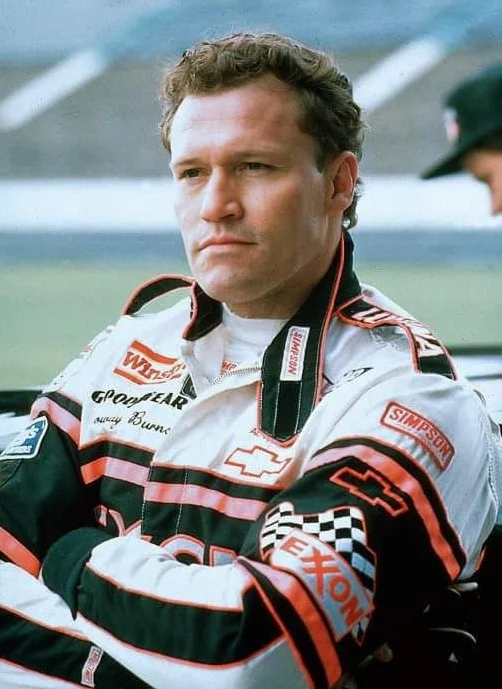 Michael Rooker gives an unforgettable Oscar-worthy performance as Rowdy Burns in Days of Thunder.
Equipped with the best lines, he takes the film to another level by playing his character to perfection: "Listen,
man. I've raced with my legs broke, heart bruised, eyes popping out of my head like they're on springs. This
is going to go away just like anything else." Instead, the win went to Joe Pesci for Goodfellas
for his completely overrated performance.
Michael Rooker gives an unforgettable Oscar-worthy performance as Rowdy Burns in Days of Thunder.
Equipped with the best lines, he takes the film to another level by playing his character to perfection: "Listen,
man. I've raced with my legs broke, heart bruised, eyes popping out of my head like they're on springs. This
is going to go away just like anything else." Instead, the win went to Joe Pesci for Goodfellas
for his completely overrated performance.
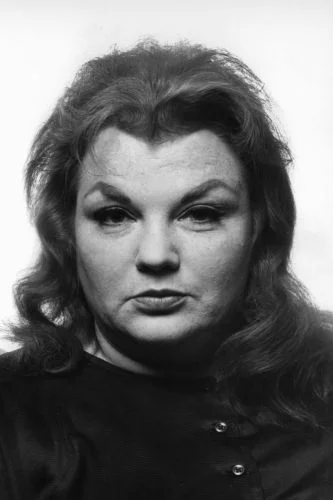 Yeah, you can admit it: Shirley Stoler is ugly. Who cares? It's not about looks but merit. Leonard Kastle,
a Juilliard-trained opera composer, once said, "I was revolted by that movie [Bonnie and Clyde]. I
didn't want to show beautiful shots of beautiful people." This is how he was inspired to make
The Honeymoon Killers which is the only film he ever directed. Glenda Jackson got it instead
for Women in Love.
Yeah, you can admit it: Shirley Stoler is ugly. Who cares? It's not about looks but merit. Leonard Kastle,
a Juilliard-trained opera composer, once said, "I was revolted by that movie [Bonnie and Clyde]. I
didn't want to show beautiful shots of beautiful people." This is how he was inspired to make
The Honeymoon Killers which is the only film he ever directed. Glenda Jackson got it instead
for Women in Love.
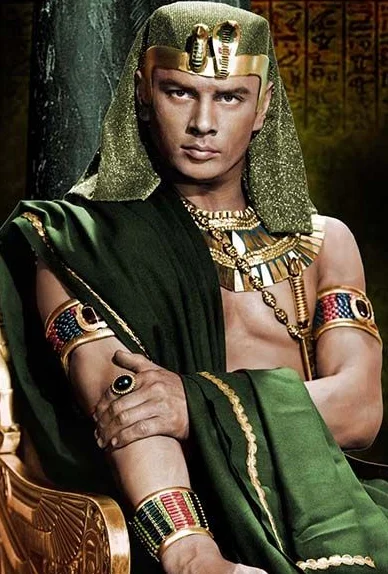 This is maybe not a snub but rather a correction because it's about the same actor who won the Oscar for
The King and I during the same year. If you ask me who gave a stronger performance in
The Ten Commandments: Charlton Heston or Yul Brynner, I must say it's no contest: Yul Brynner.
Failing to receive a nomination, he's truly impressive as Rameses II.
This is maybe not a snub but rather a correction because it's about the same actor who won the Oscar for
The King and I during the same year. If you ask me who gave a stronger performance in
The Ten Commandments: Charlton Heston or Yul Brynner, I must say it's no contest: Yul Brynner.
Failing to receive a nomination, he's truly impressive as Rameses II.
 1939 was a very competitive year for Hollywood with many great movies including Gone with the Wind.
Hattie McDaniel may have won the award for Best Supporting Actress although a case can be made for Olivia
de Havilland as Melanie Hamilton. It really has to go to Margaret Hamilton for her brilliant, timeless
performance as Miss Gulch/The Wicked Witch of the West in The Wizard of Oz.
1939 was a very competitive year for Hollywood with many great movies including Gone with the Wind.
Hattie McDaniel may have won the award for Best Supporting Actress although a case can be made for Olivia
de Havilland as Melanie Hamilton. It really has to go to Margaret Hamilton for her brilliant, timeless
performance as Miss Gulch/The Wicked Witch of the West in The Wizard of Oz.
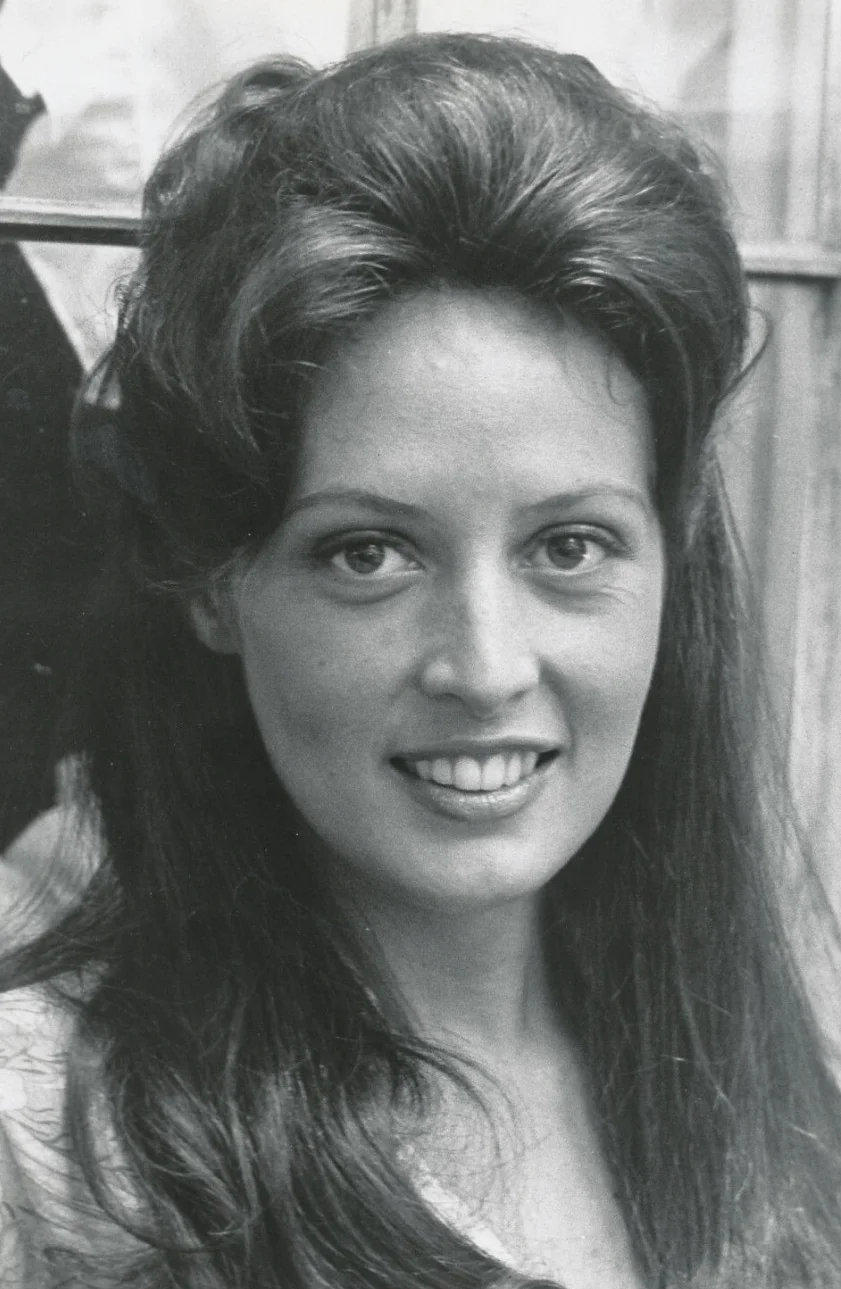 Nashville has one of the greatest ensemble casts ever. Only Keith Carradine won the Oscar for his
original song "I'm Easy." But Ronee Blakley deserved it, too; it's just a terrific performance as the
emotionally fragile country singer, having been cast at the last minute. Unfortunately, Lee Grant won
it for Shampoo.
Nashville has one of the greatest ensemble casts ever. Only Keith Carradine won the Oscar for his
original song "I'm Easy." But Ronee Blakley deserved it, too; it's just a terrific performance as the
emotionally fragile country singer, having been cast at the last minute. Unfortunately, Lee Grant won
it for Shampoo.
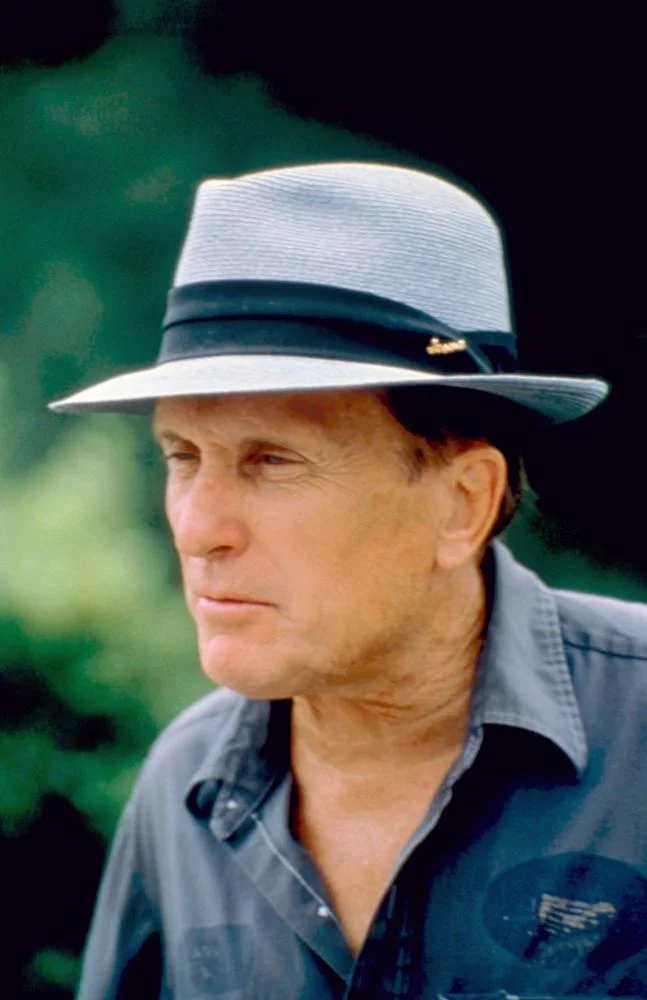 The Apostle paints a complex picture of a religion-obsessed criminal who uses the power of faith to
move human beings. A pure spiritual awakening with insights into the churchgoing culture in the Deep South,
there are many scenes that are moving. Robert Duvall is very sincere about it, and there's nothing overdone.
Jack Nicholson ended up getting it for As Good as It Gets.
The Apostle paints a complex picture of a religion-obsessed criminal who uses the power of faith to
move human beings. A pure spiritual awakening with insights into the churchgoing culture in the Deep South,
there are many scenes that are moving. Robert Duvall is very sincere about it, and there's nothing overdone.
Jack Nicholson ended up getting it for As Good as It Gets.
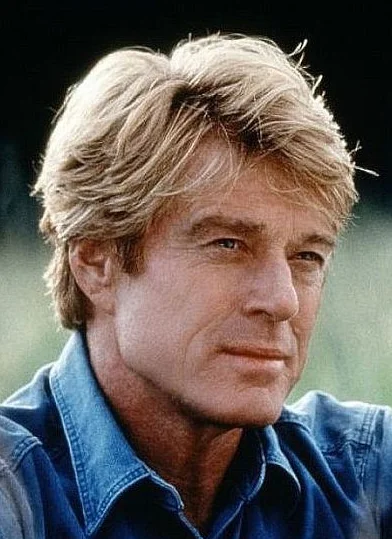 The Horse Whisperer is a terrific motion picture. Tom Booker may be the deepest character of Robert
Redford's career. He can do no wrong, appearing mystical with the right lines. Kristin Scott Thomas does well
and can be respectful when necessary. Of course, Pilgrim is the show. Every time the attention is on him, the
power of editing comes alive. Winning the Best Actor award is Roberto Benigni for La vita è bella.
The Horse Whisperer is a terrific motion picture. Tom Booker may be the deepest character of Robert
Redford's career. He can do no wrong, appearing mystical with the right lines. Kristin Scott Thomas does well
and can be respectful when necessary. Of course, Pilgrim is the show. Every time the attention is on him, the
power of editing comes alive. Winning the Best Actor award is Roberto Benigni for La vita è bella.
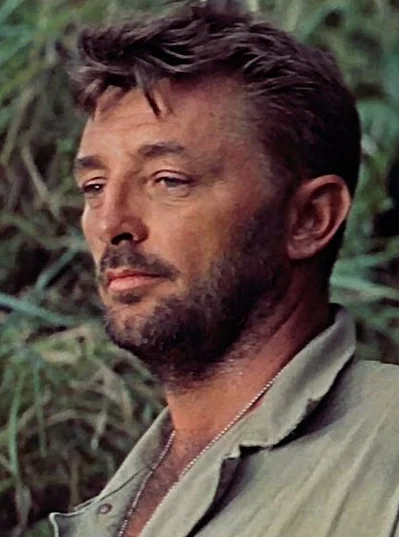 Heaven Knows, Mr. Allison is Robert Mitchum's movie, so why was Deborah Kerr nominated for an Oscar but
not him? That's hard to believe. Robert Mitchum stole the show in every scene. All Deborah Kerr could do is to
be awed of him. The best part is when he's inside the building to get food for her. It's the most intense acting.
The other is when he performed many stunts; that's when I knew he was doing it for real, especially when the
waves were crashing against his body. Alec Guinness won Best Actor for The Bridge on the River Kwai.
Heaven Knows, Mr. Allison is Robert Mitchum's movie, so why was Deborah Kerr nominated for an Oscar but
not him? That's hard to believe. Robert Mitchum stole the show in every scene. All Deborah Kerr could do is to
be awed of him. The best part is when he's inside the building to get food for her. It's the most intense acting.
The other is when he performed many stunts; that's when I knew he was doing it for real, especially when the
waves were crashing against his body. Alec Guinness won Best Actor for The Bridge on the River Kwai.